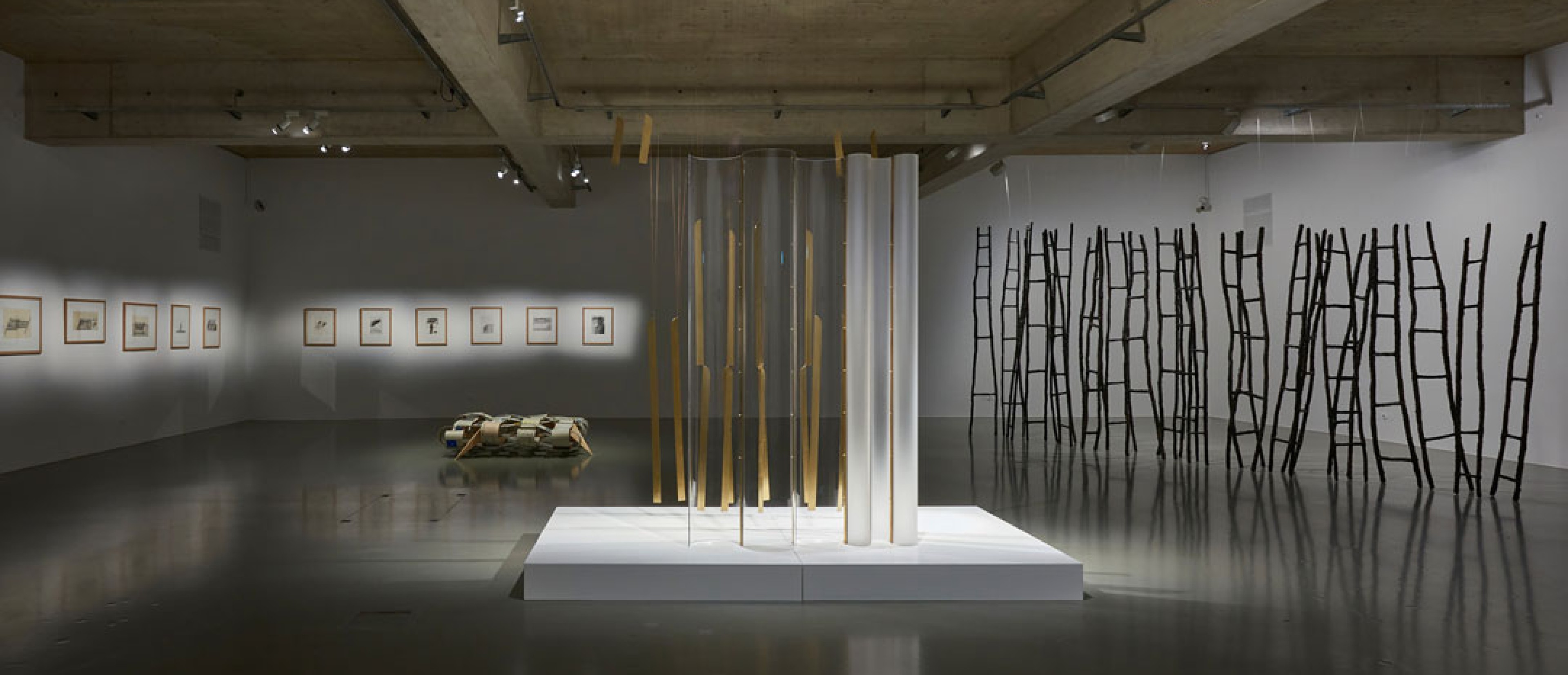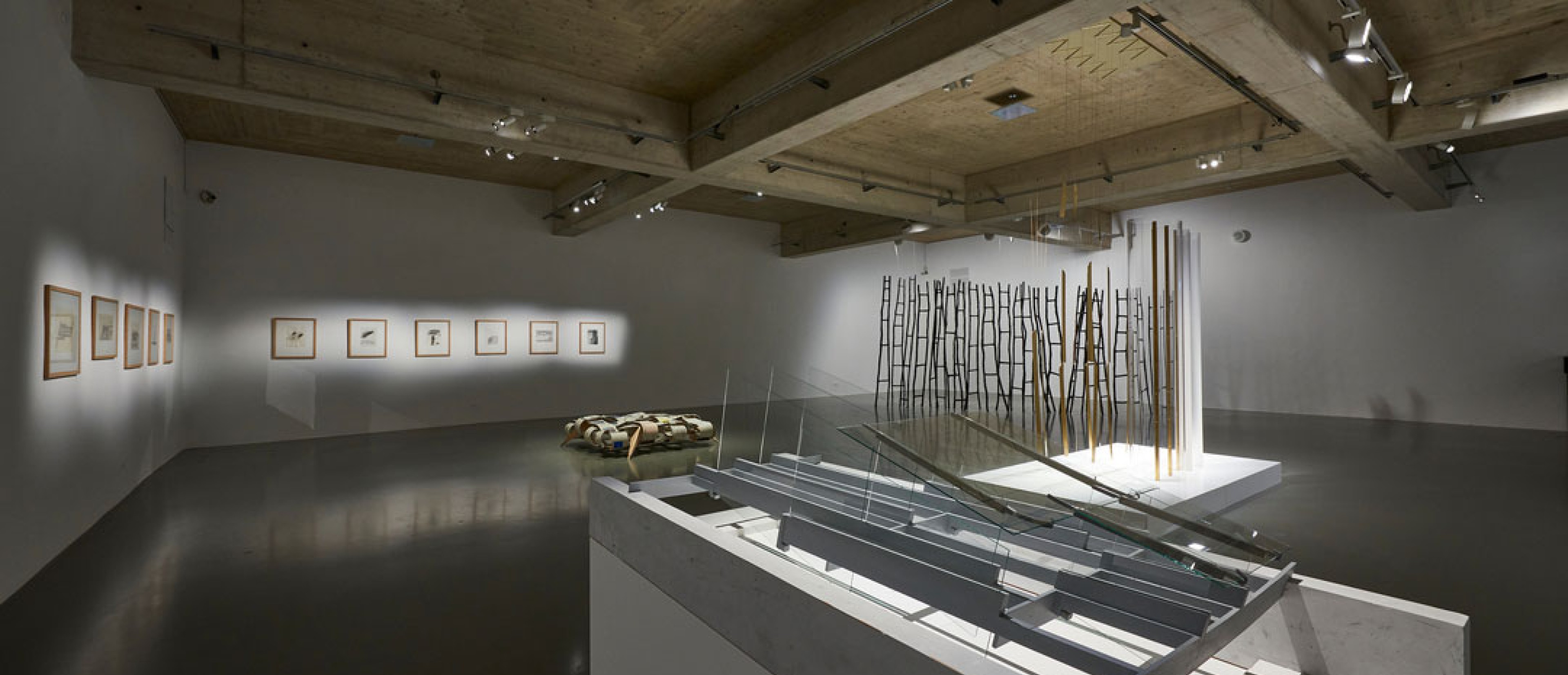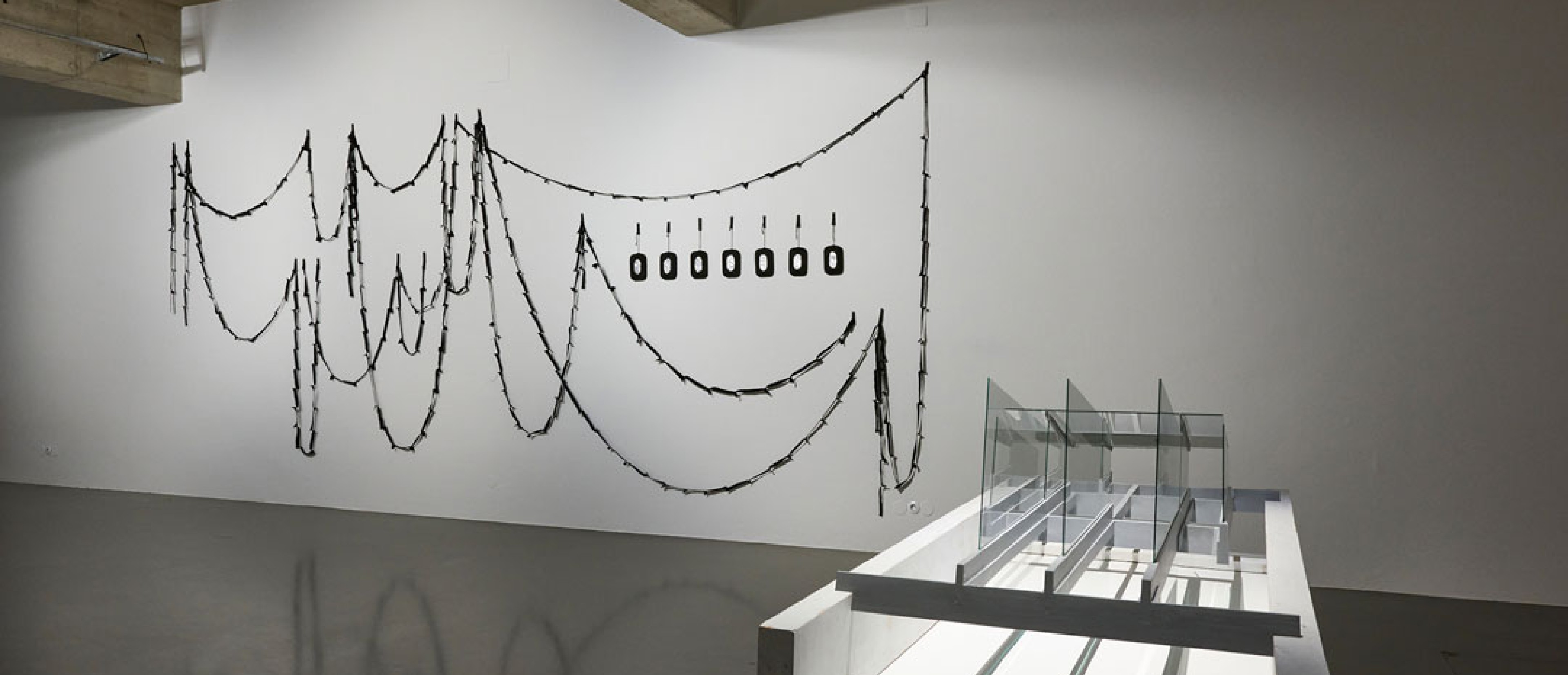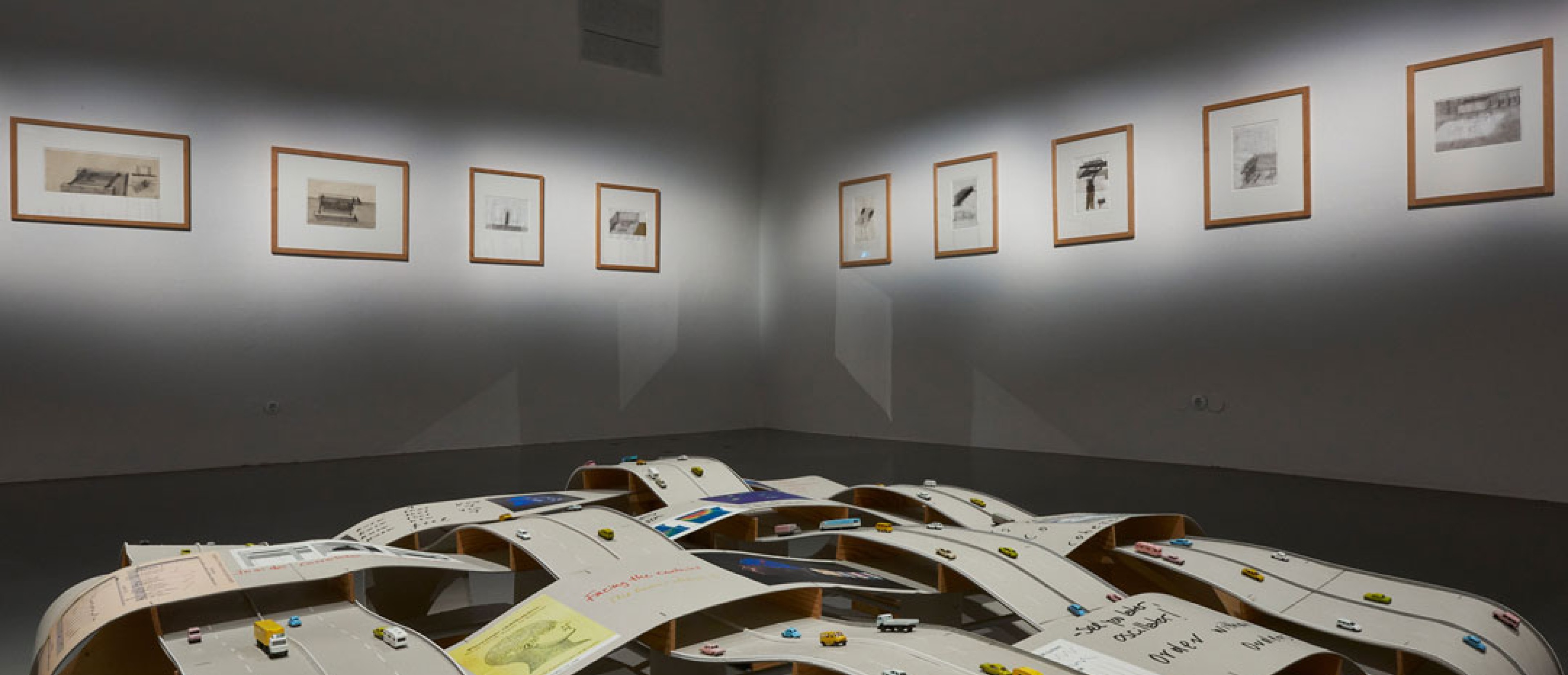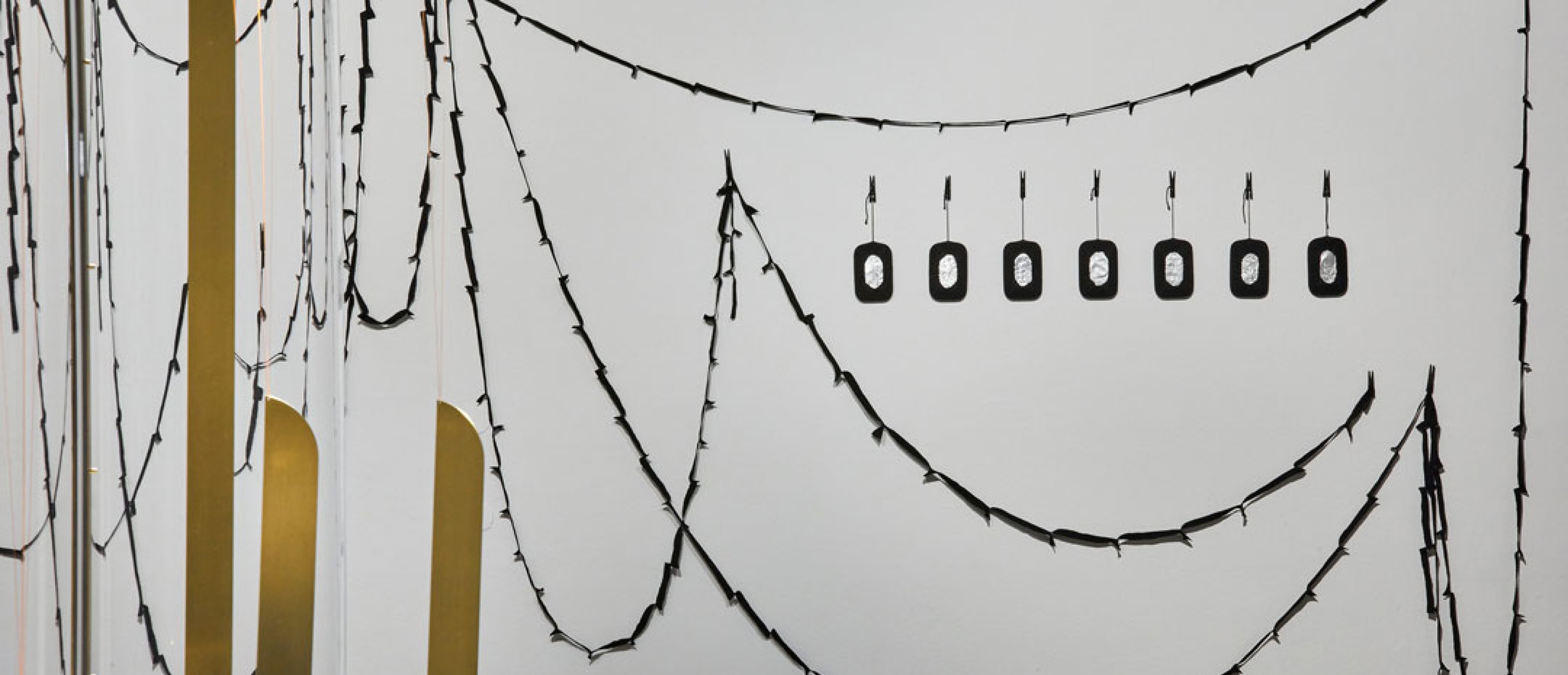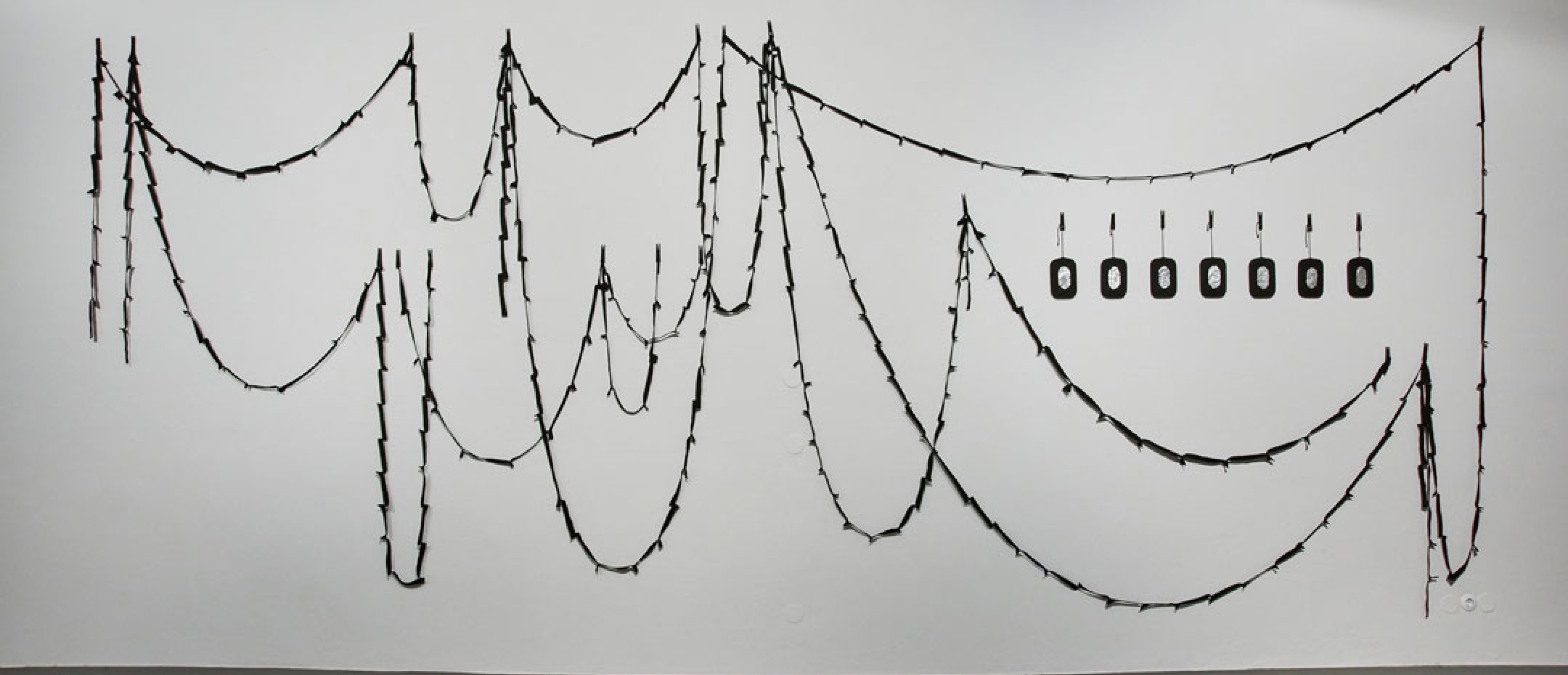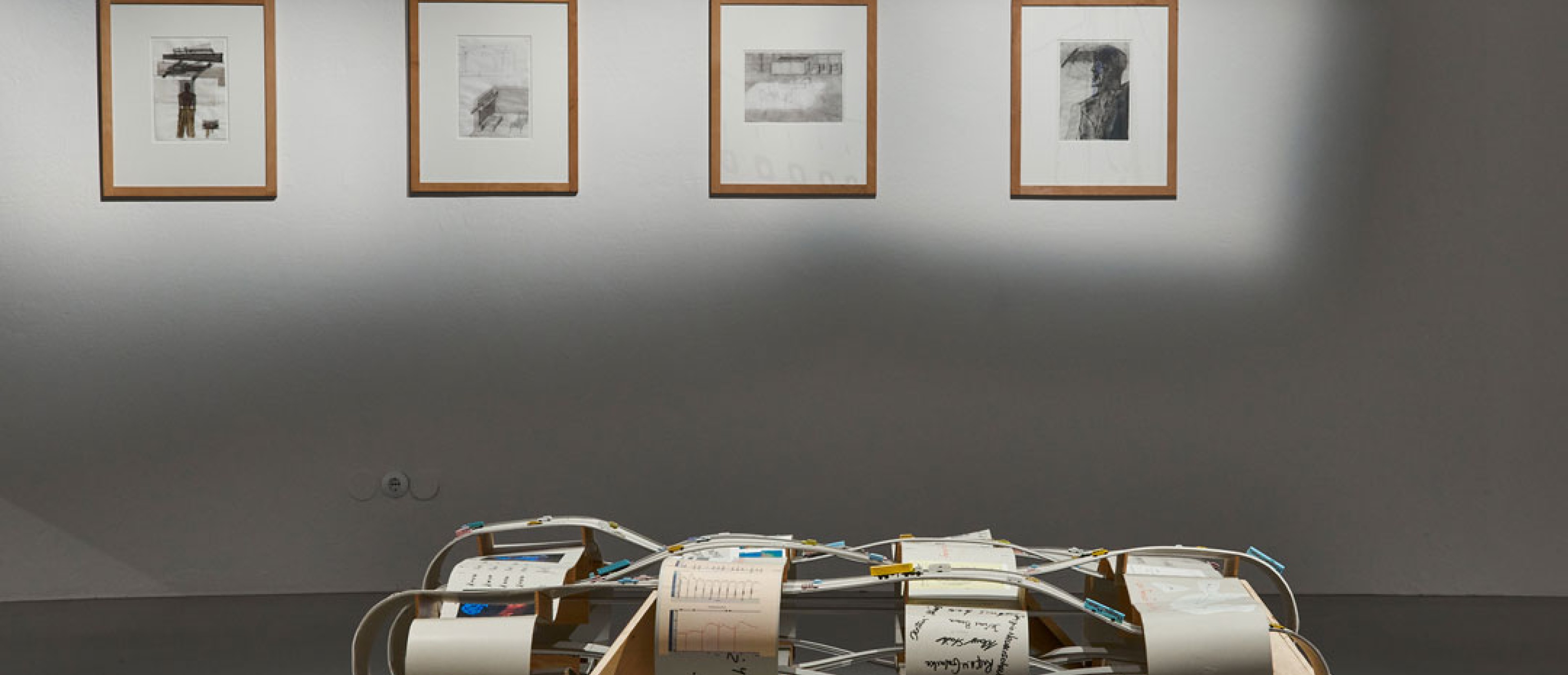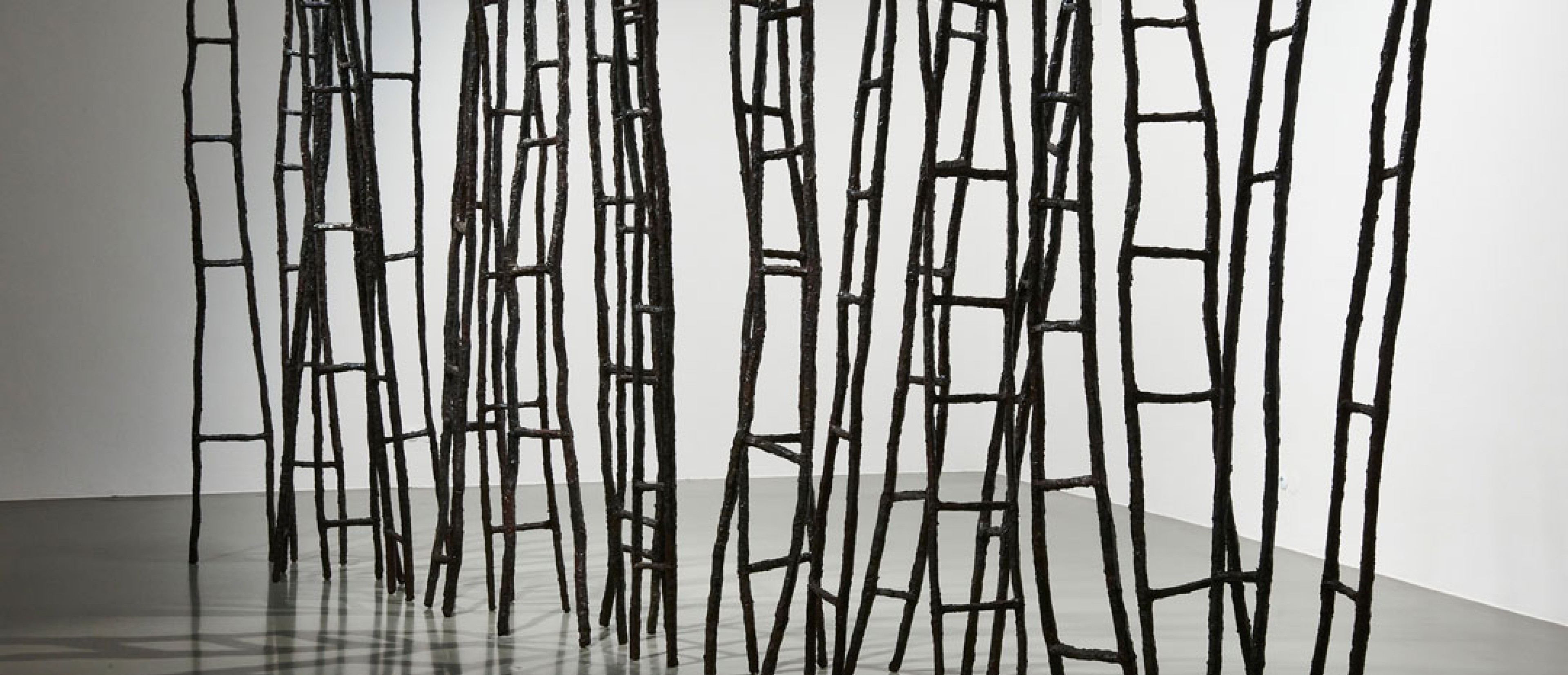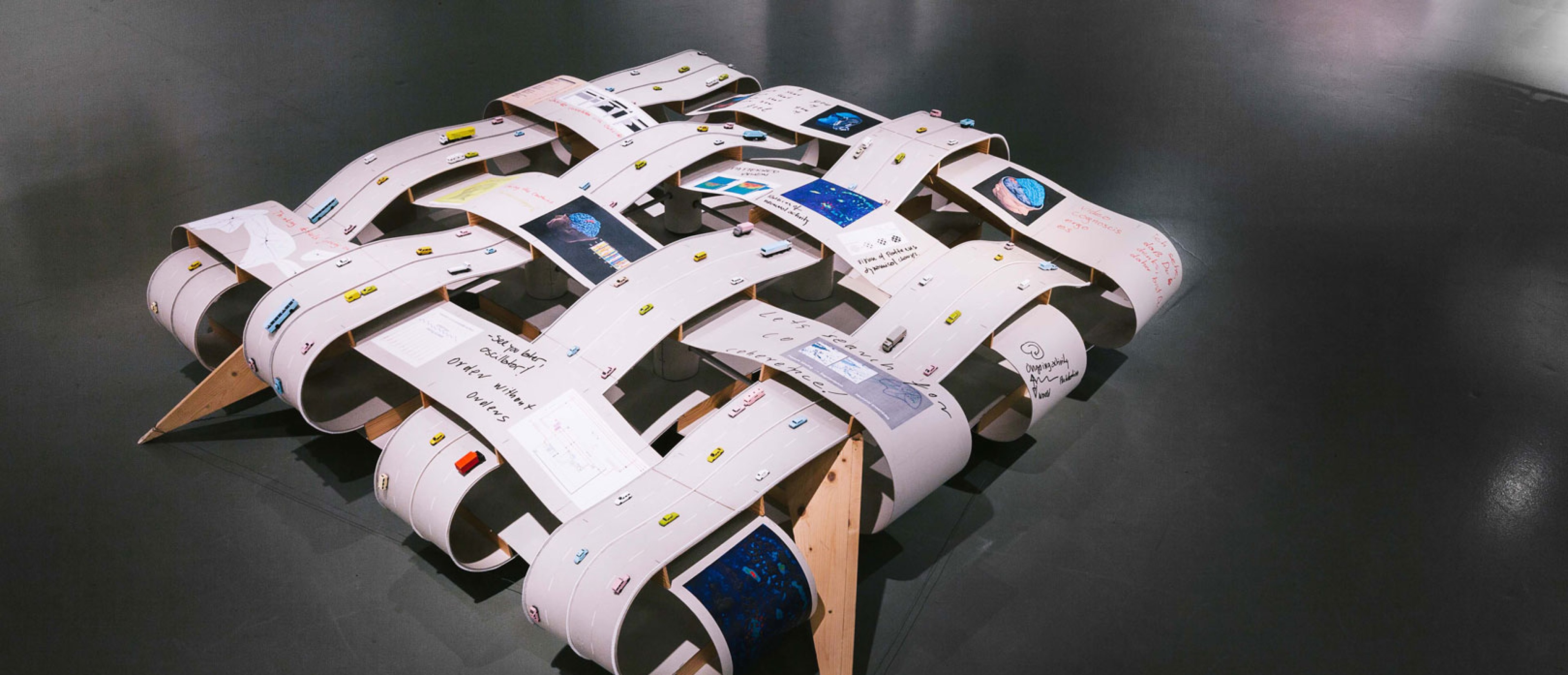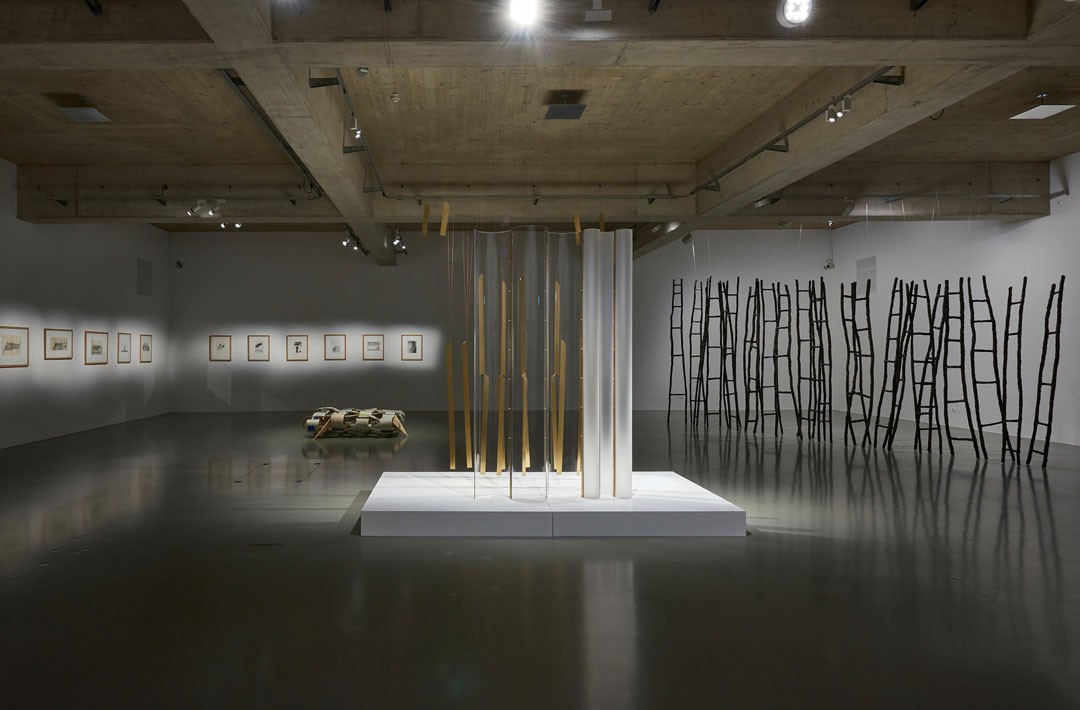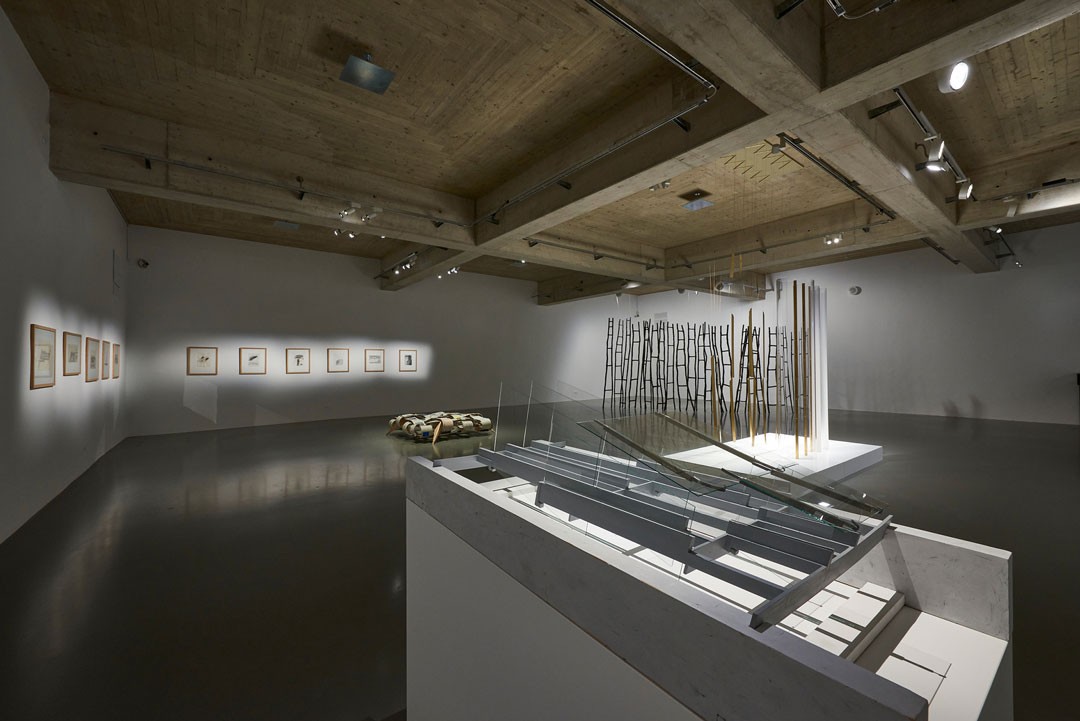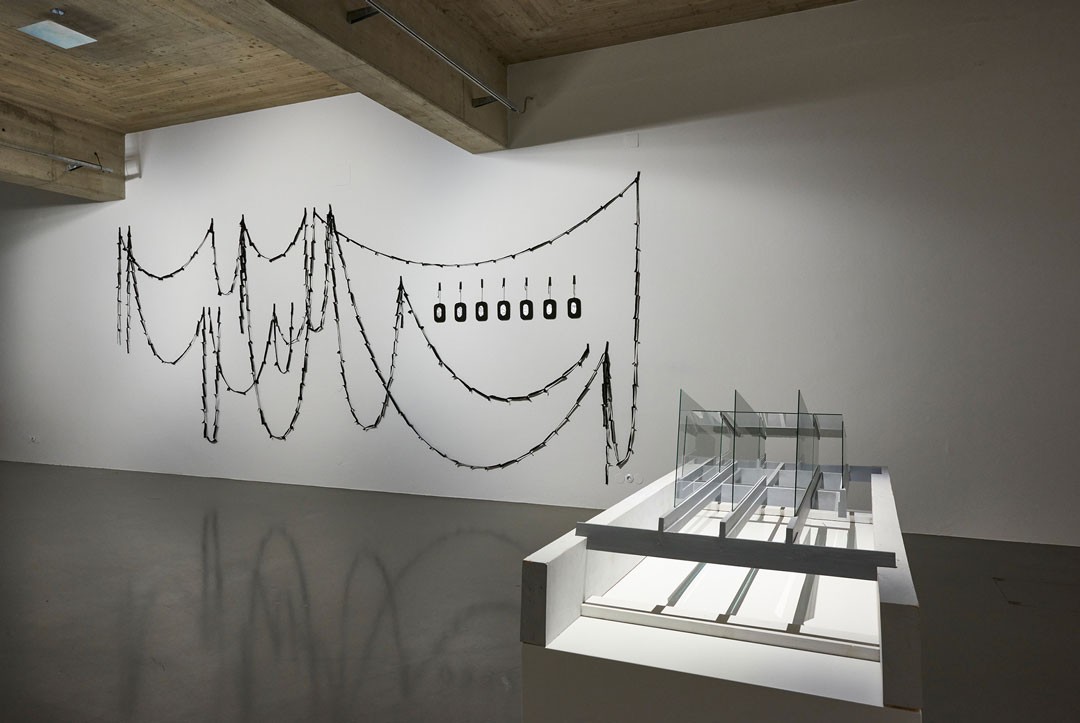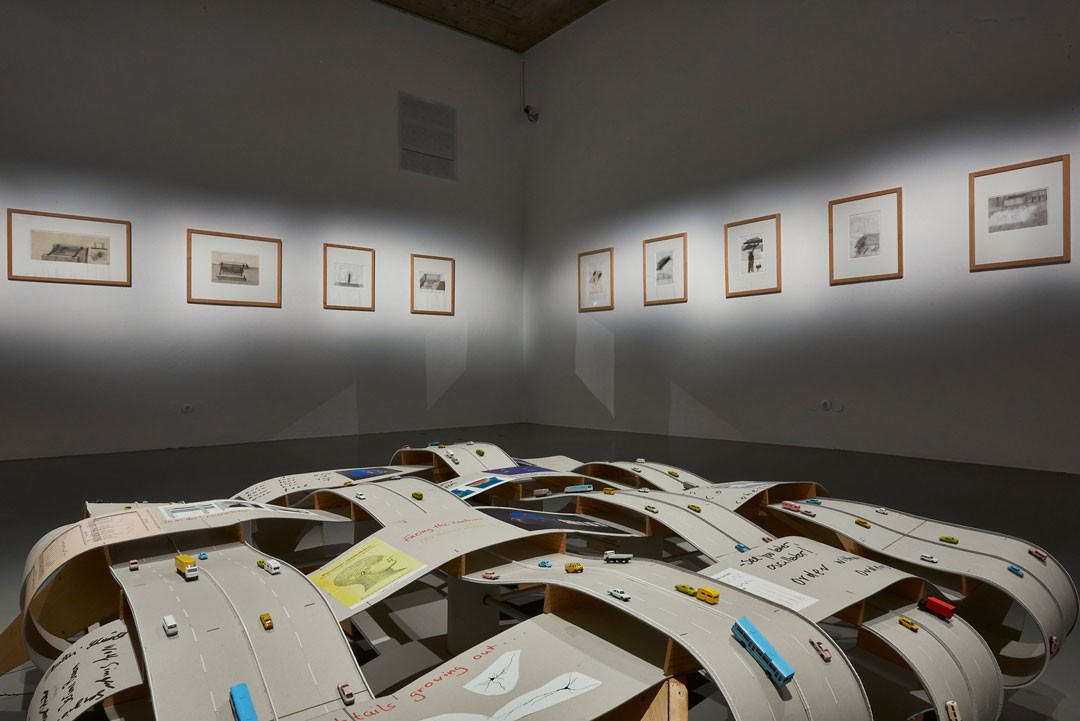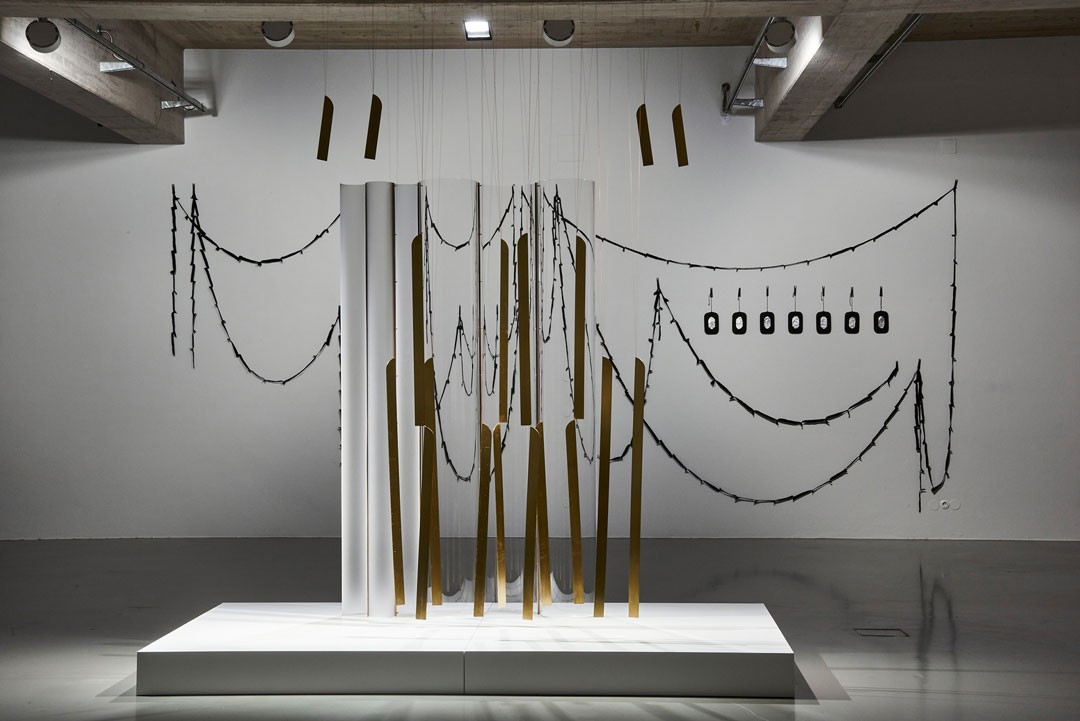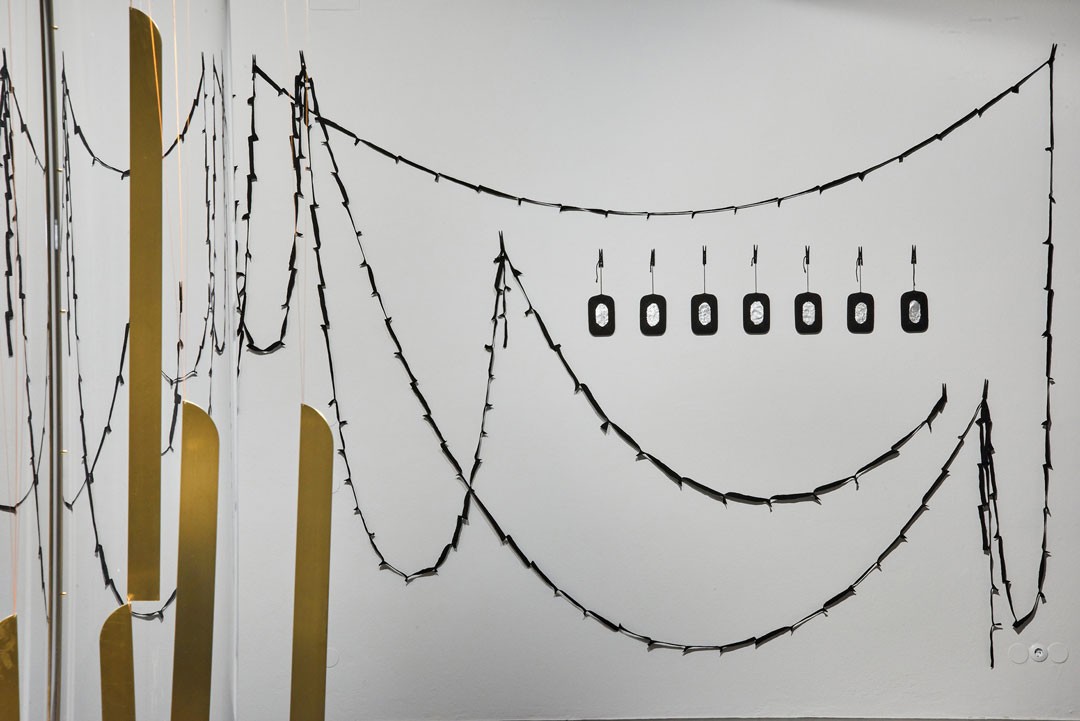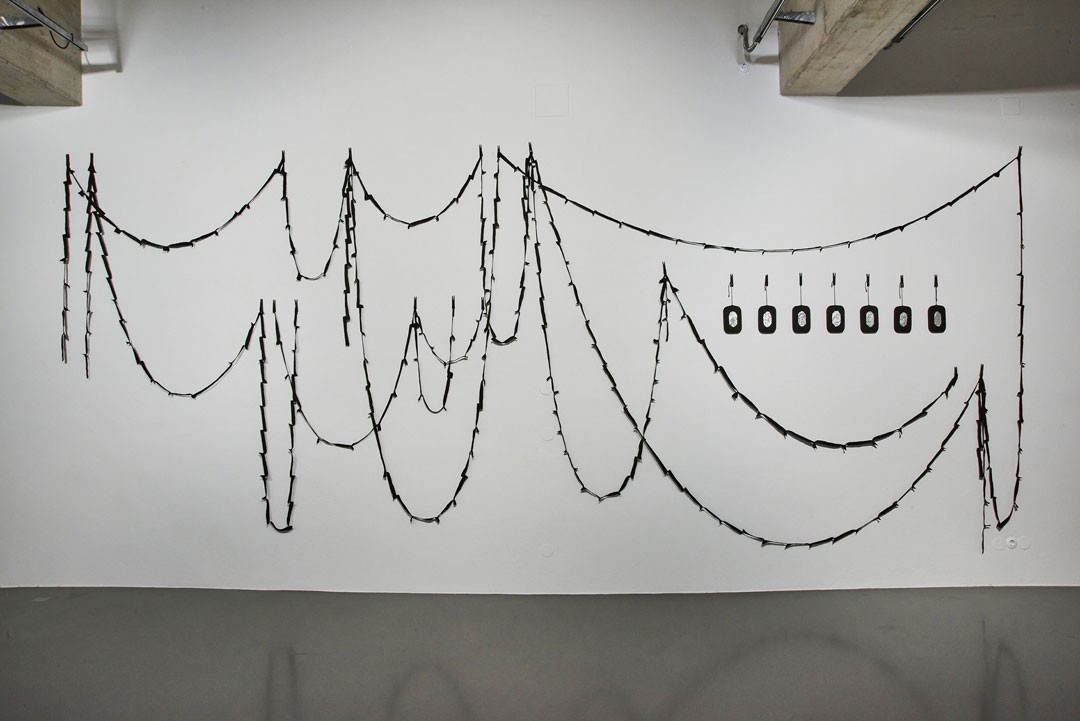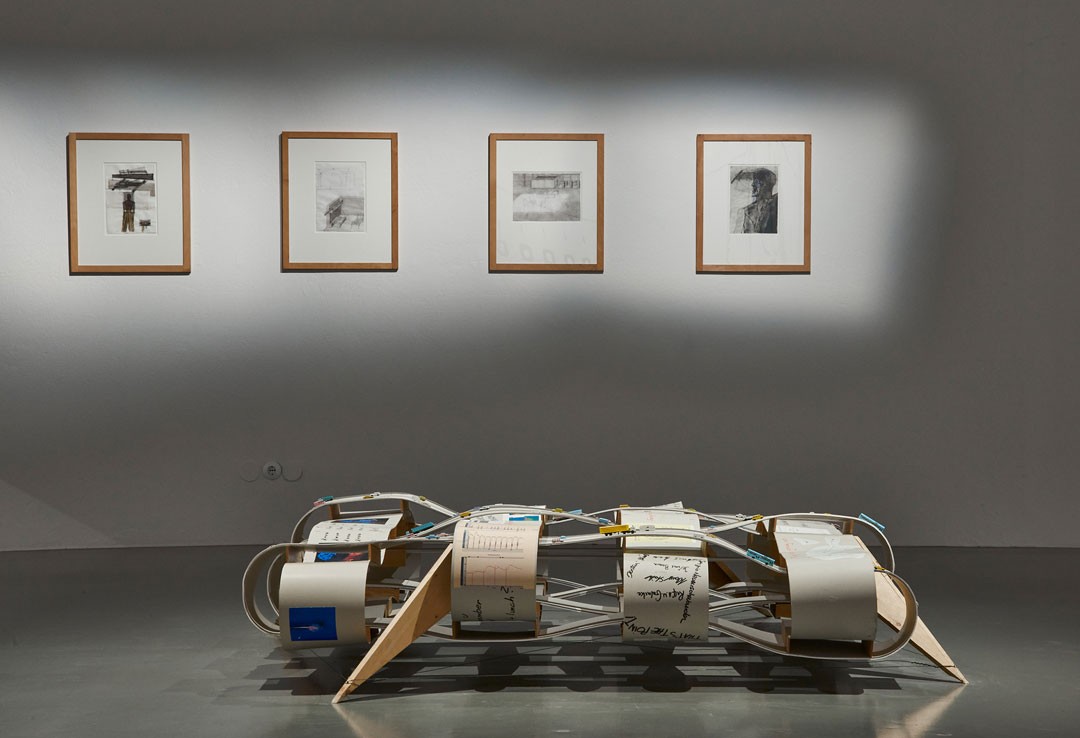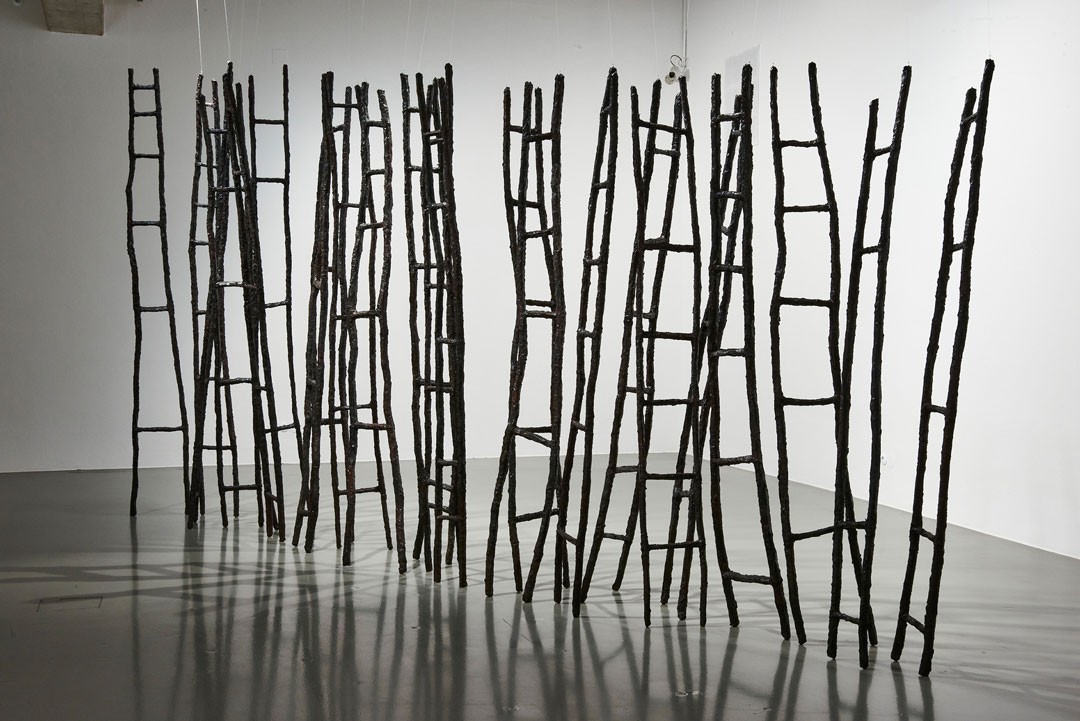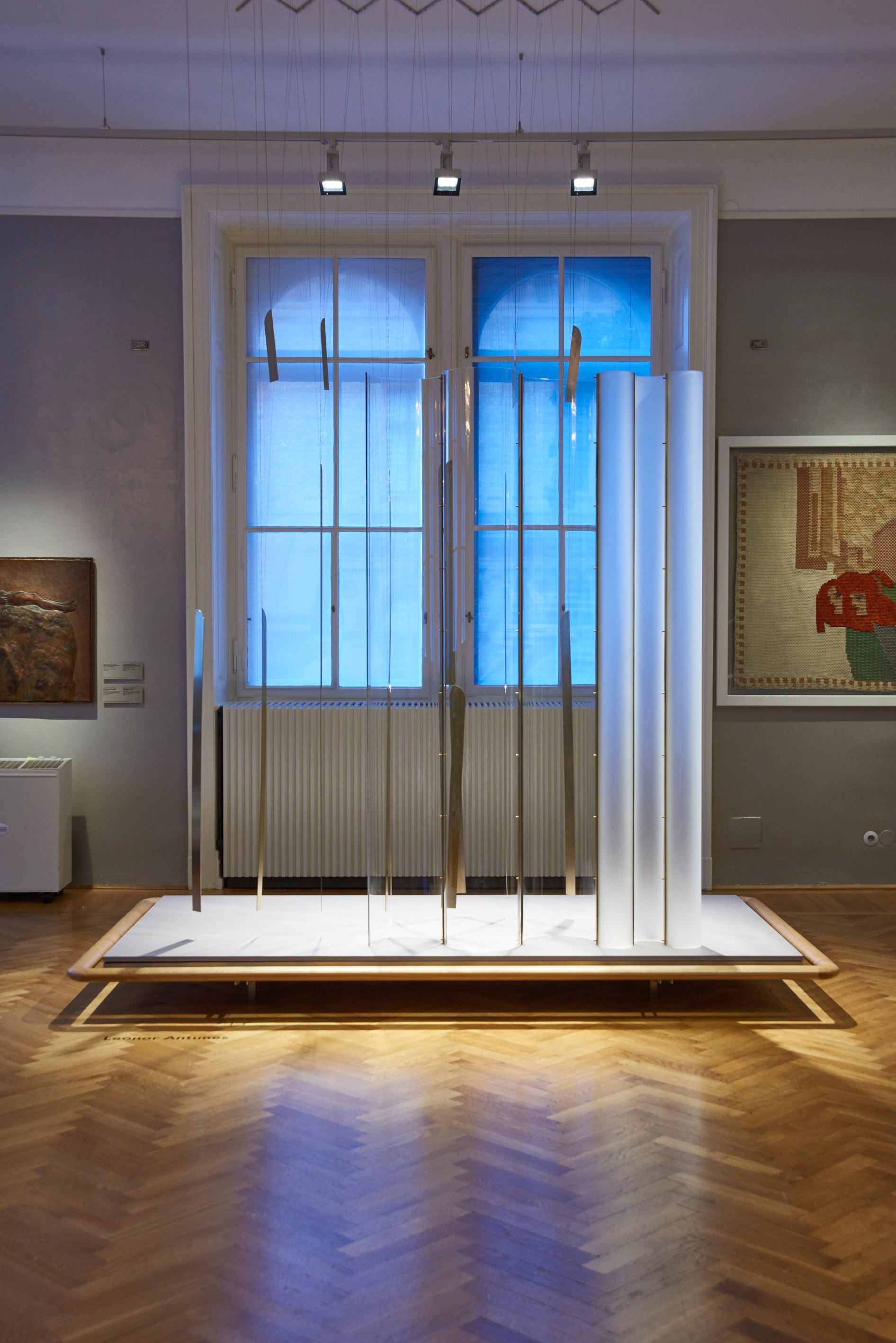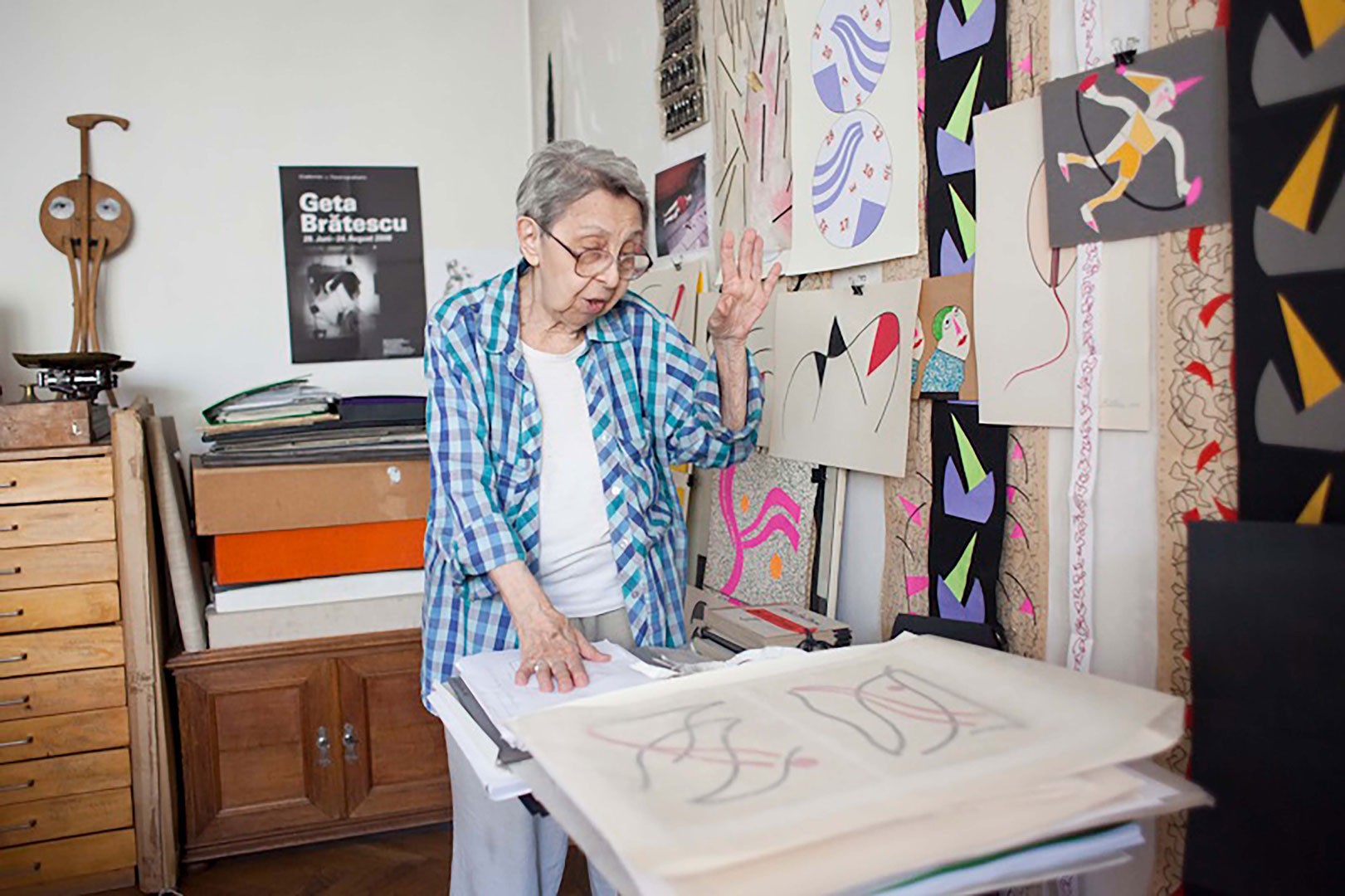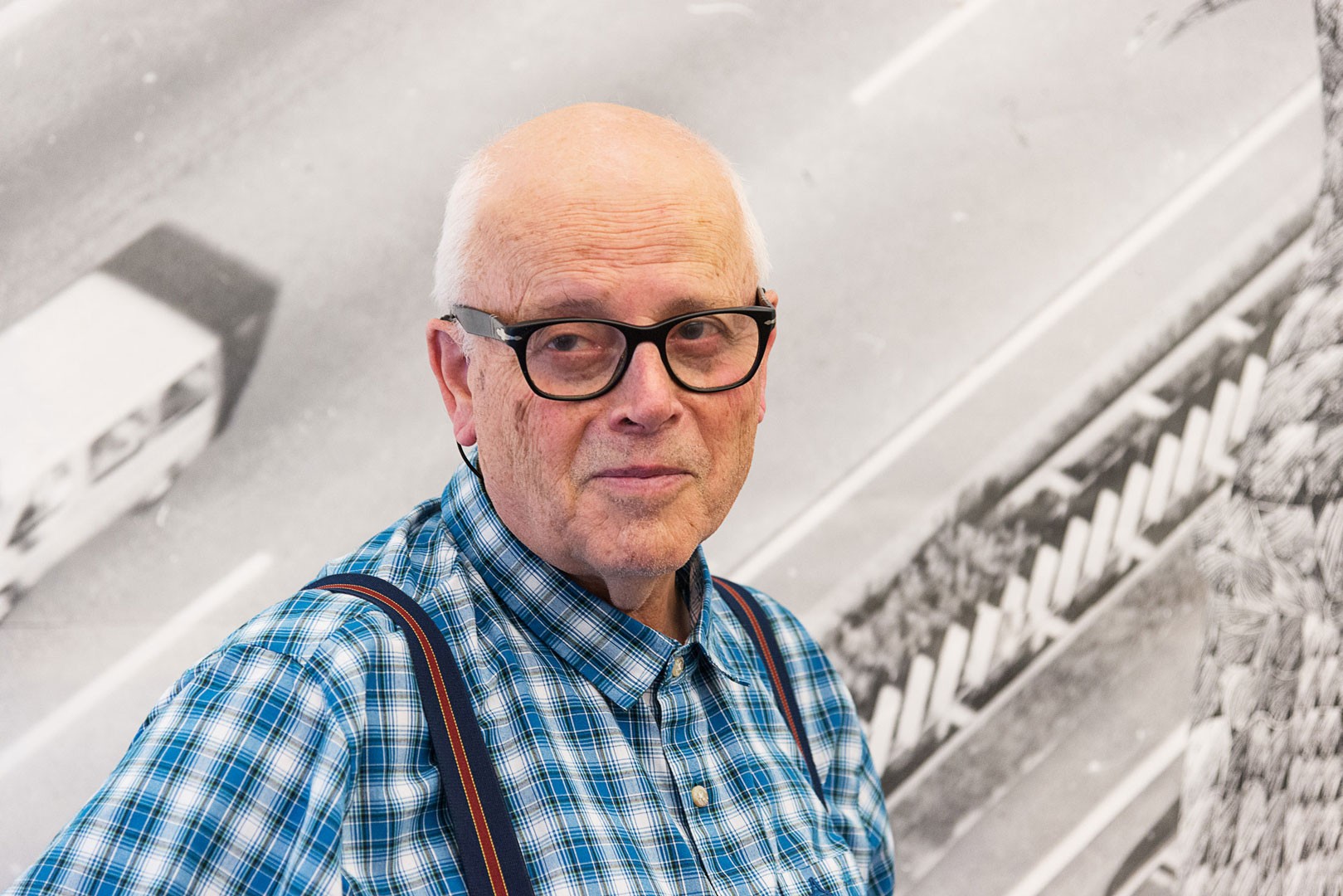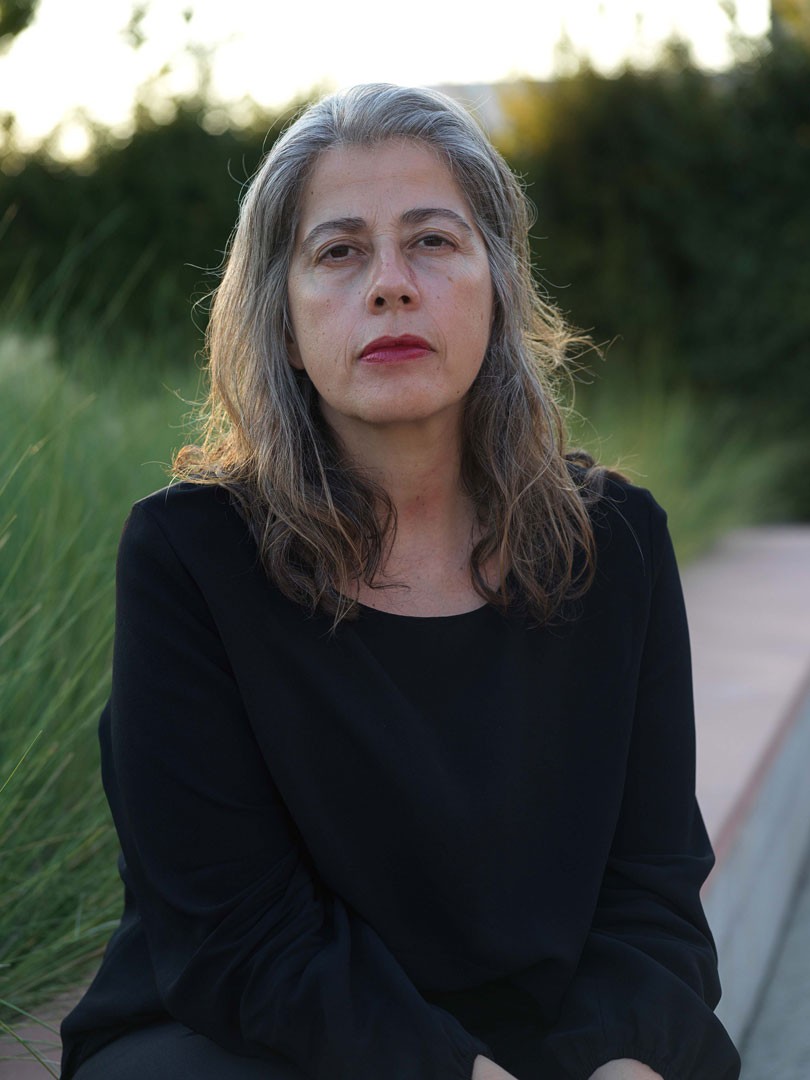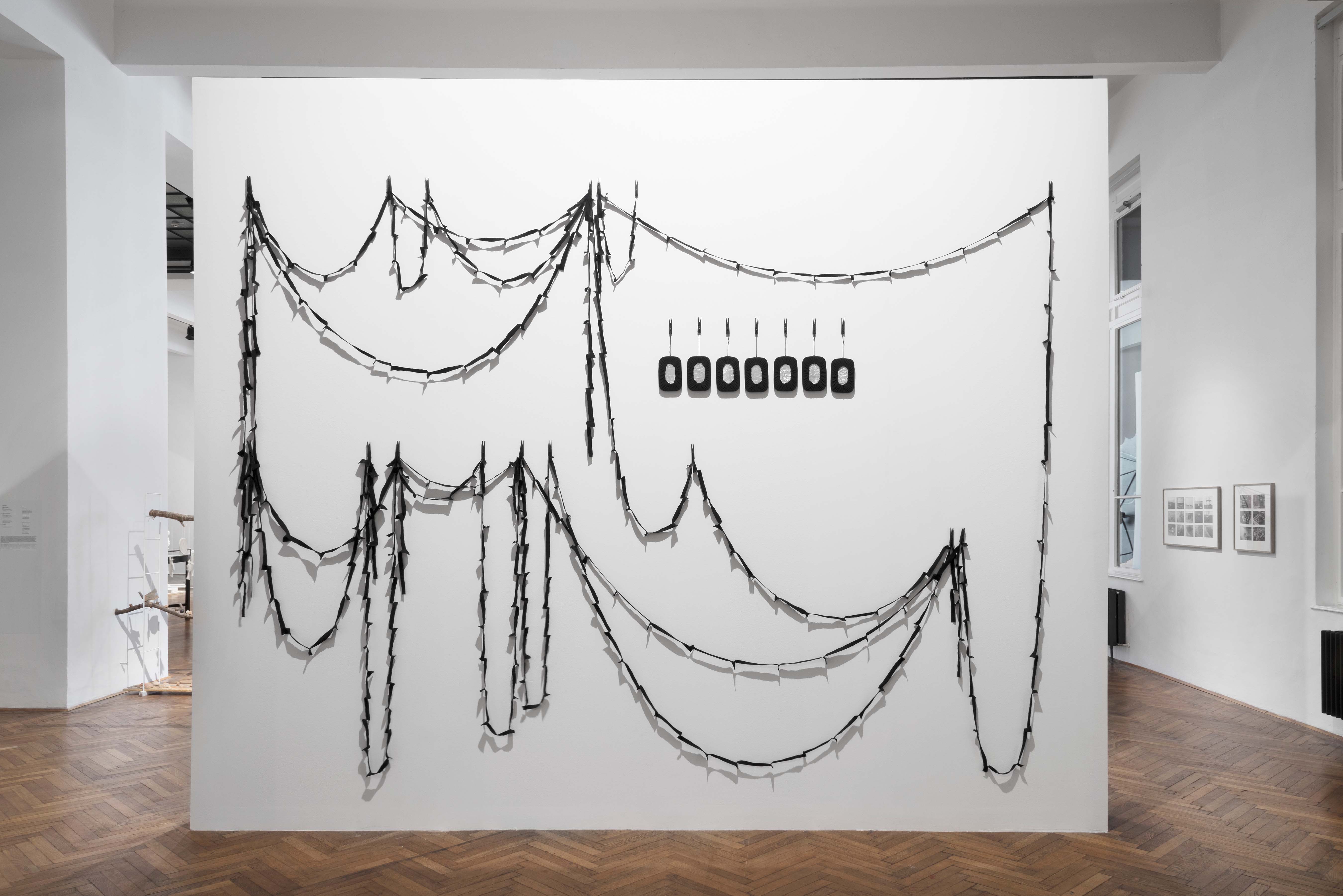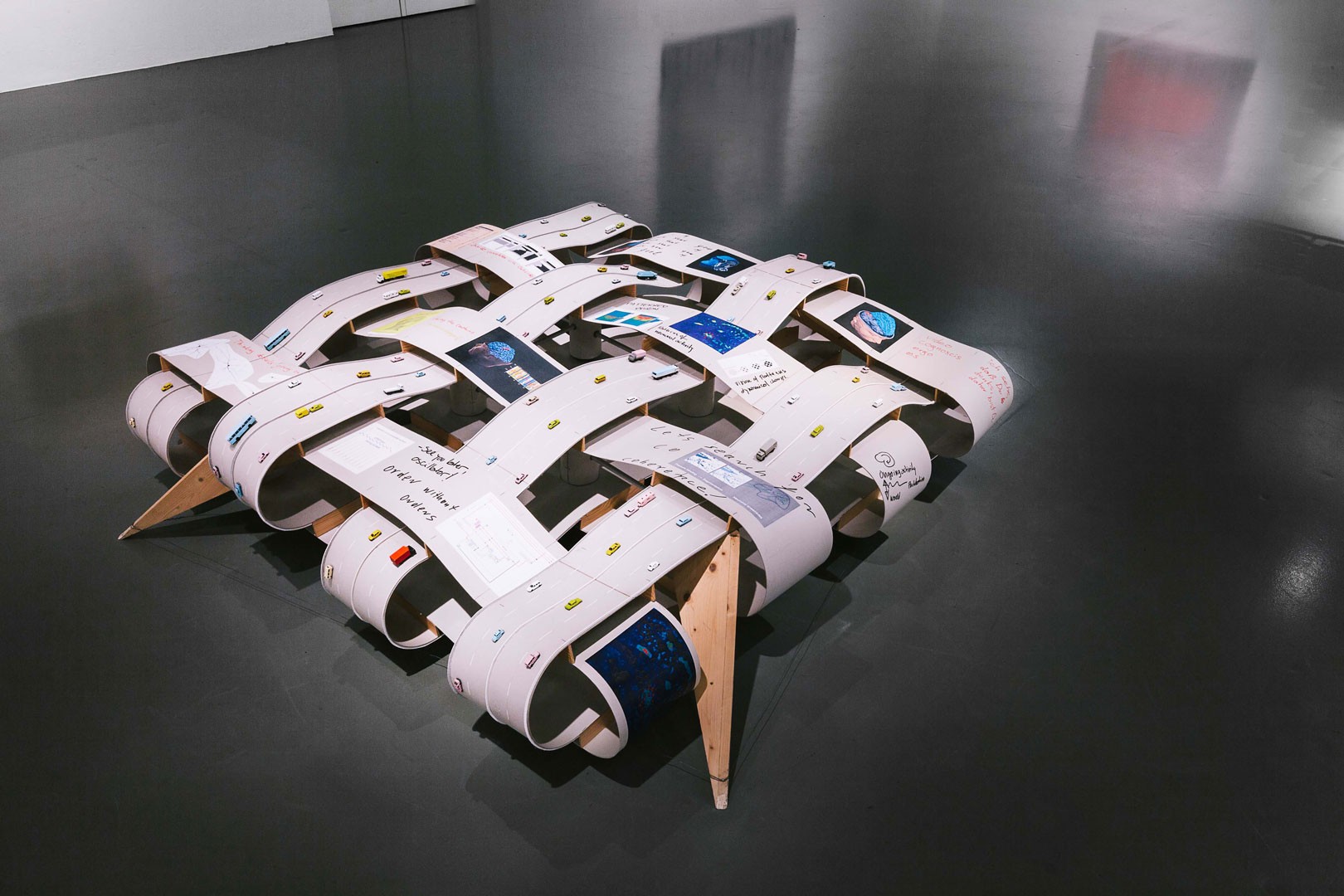© Aslan Kudrnofsky/MAK
Previous Image
The exhibition explores the manifold means of language from the perspective of visual arts. In literature, especially in poetry, language is given a poetic or musical order. The alphabet as a sign system connects all languages and the development of script mirrors the stages of modern society, its revolutions, and ruptures. Written characters represent identities and, at the same time, digital technologies aim for universal imagery.
10.2.2021—25.4.2021
Central Room MAK Design Lab
Through their individual (sign) language, the drawings, sculptures, and installations by artists Leonor Antunes, Thomas Bayrle, Geta Brătescu, Rosemarie Castoro, and Walter Pichler open a space for relationships, processes, and models.
The works were purchased by the Austrian Ludwig Foundation and handed over to the MAK as permanent loans in order to support the expansion of the collection with internationally renowned pieces of art.
CURATOR
Bärbel Vischer
CURATOR
Bärbel Vischer
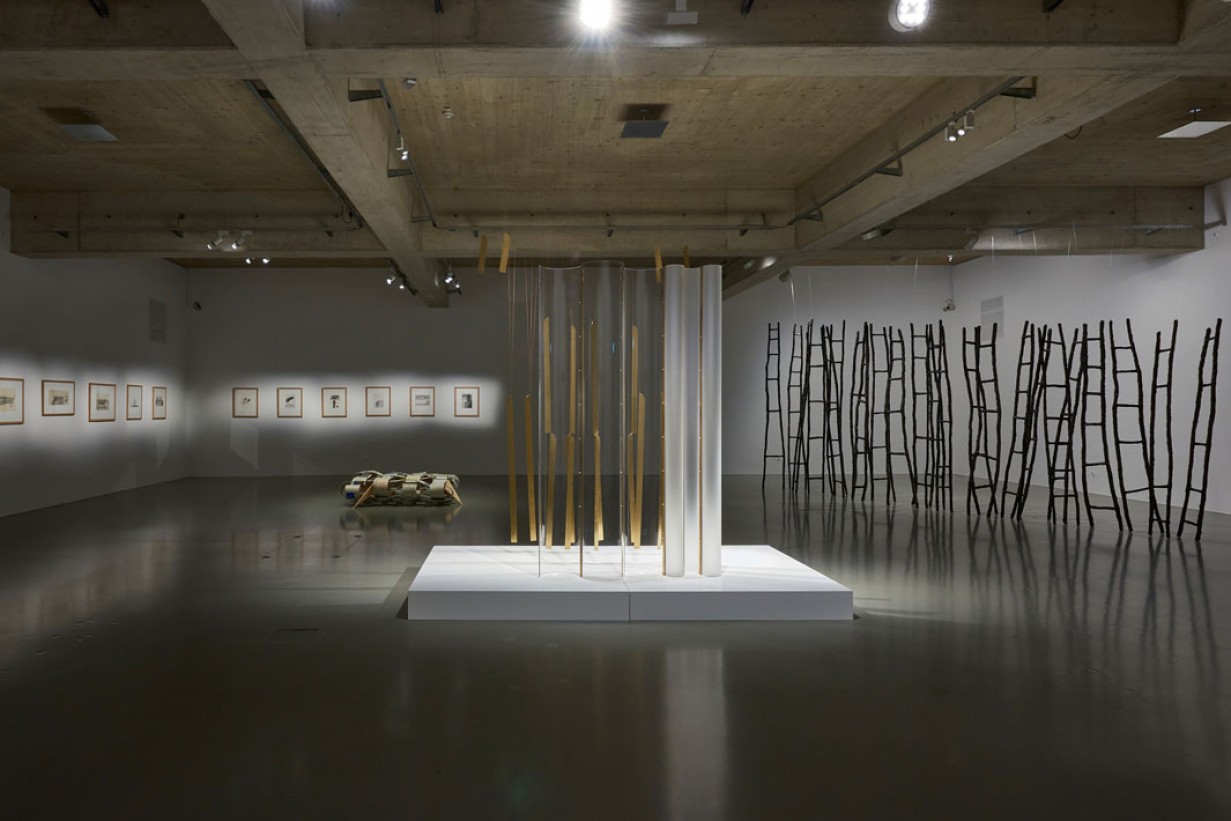
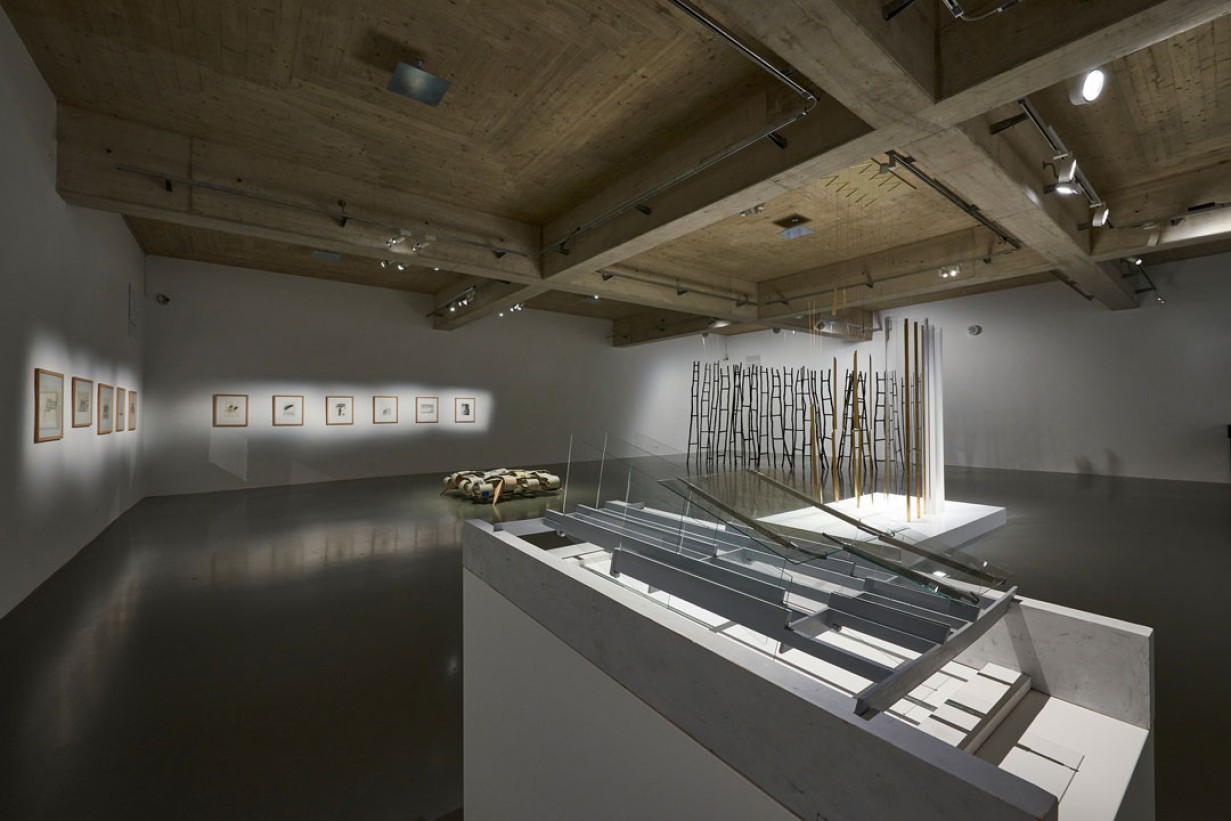
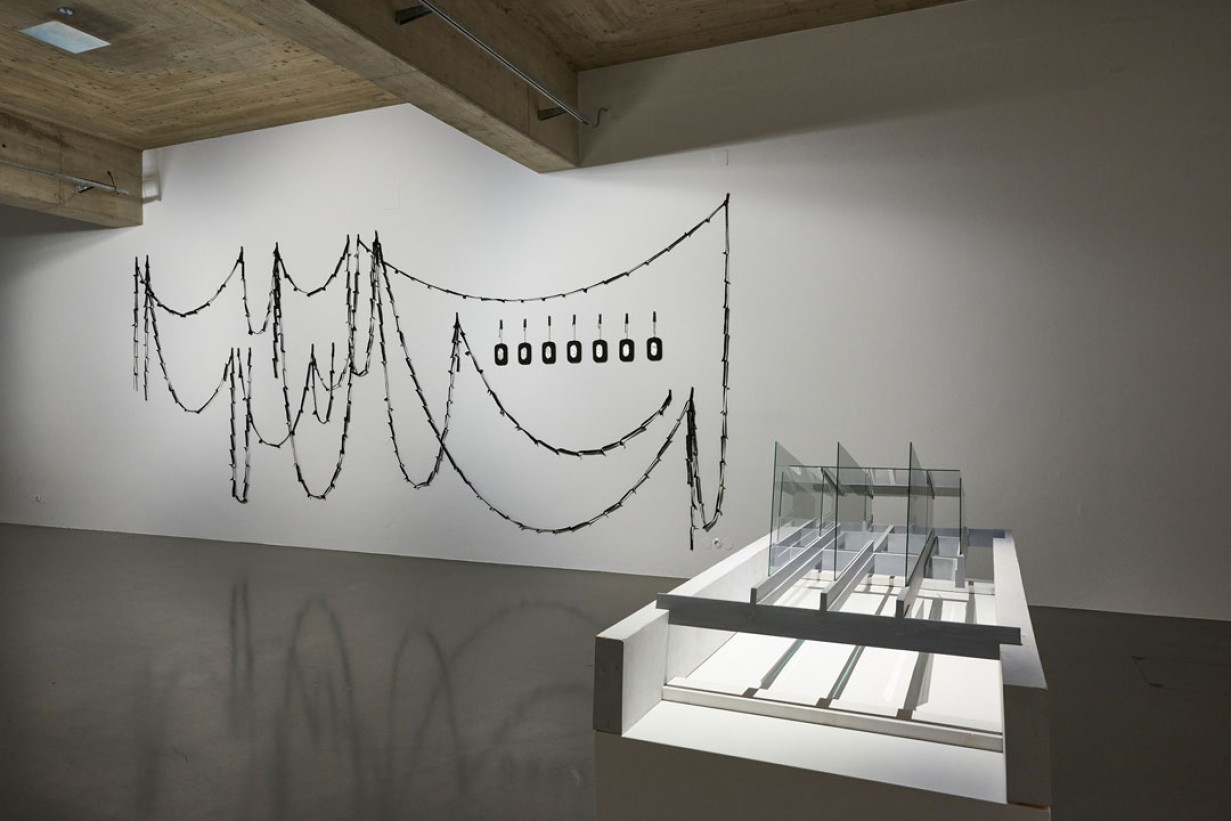
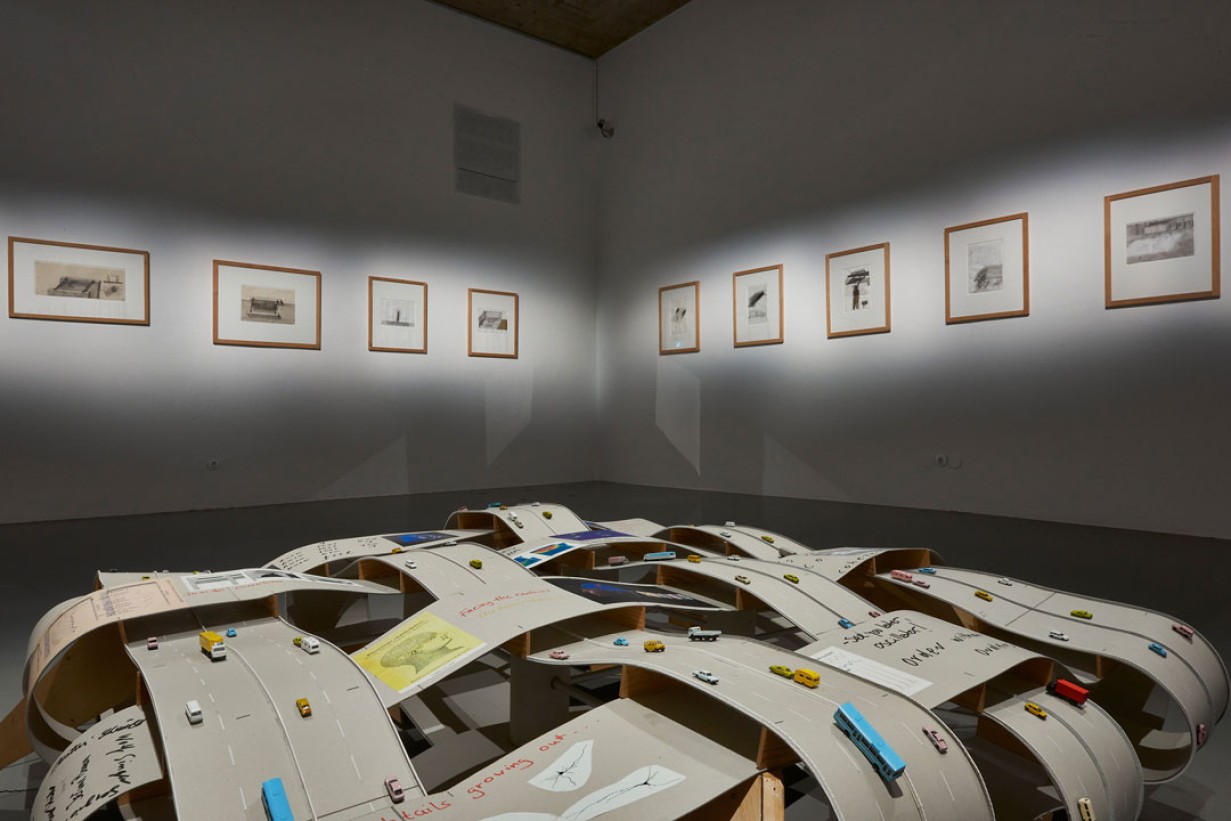
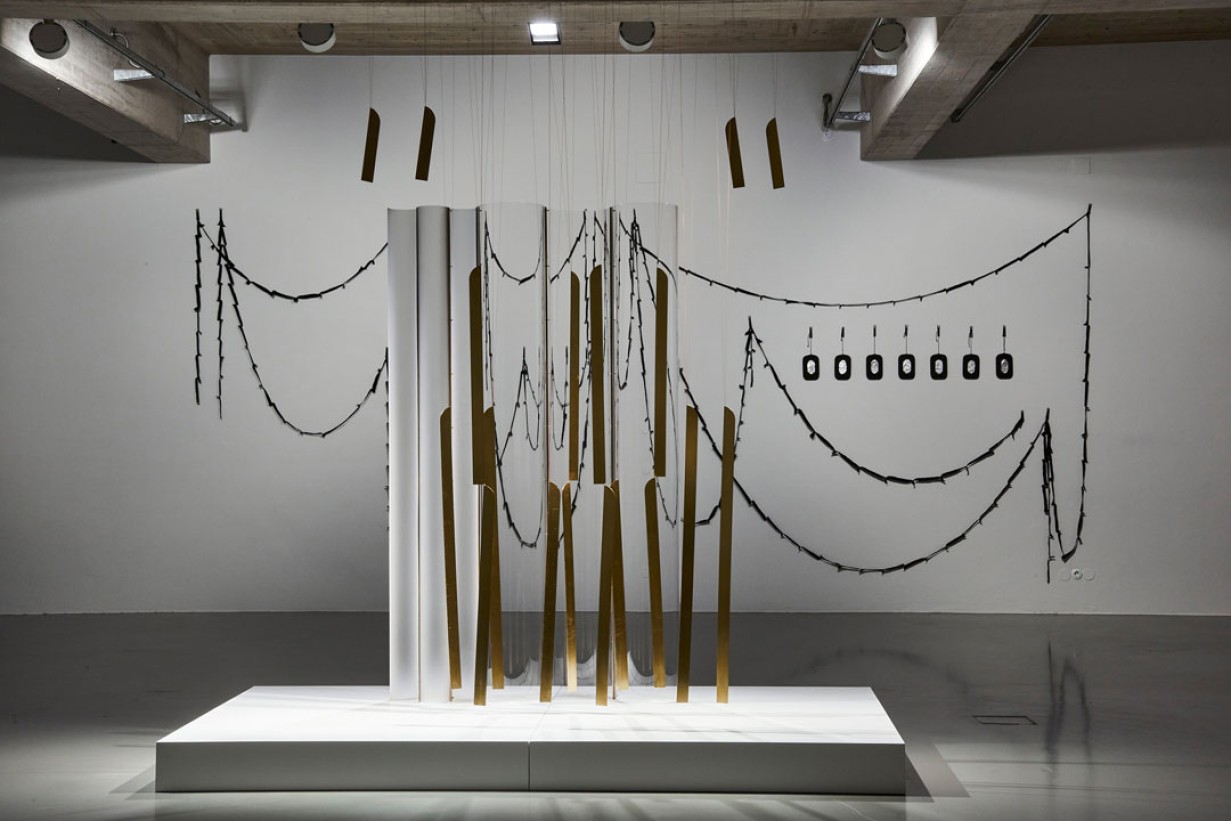
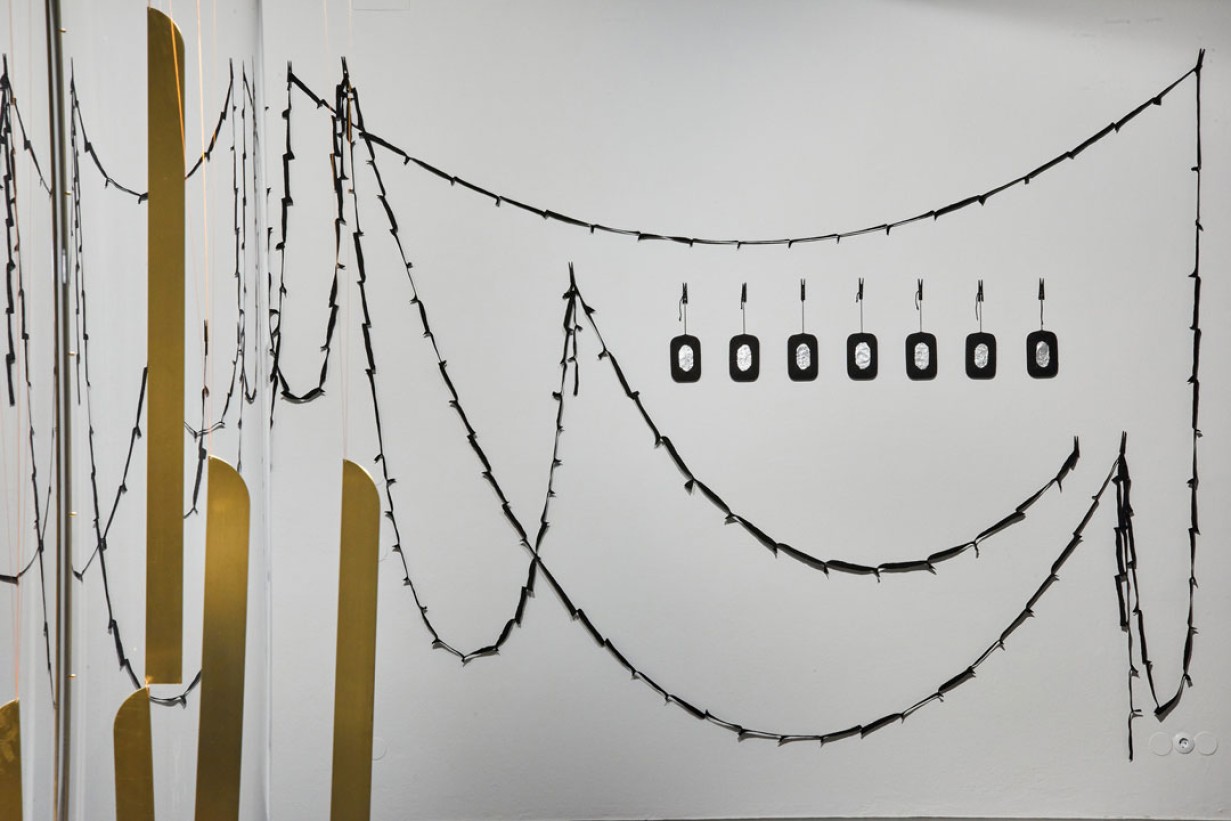
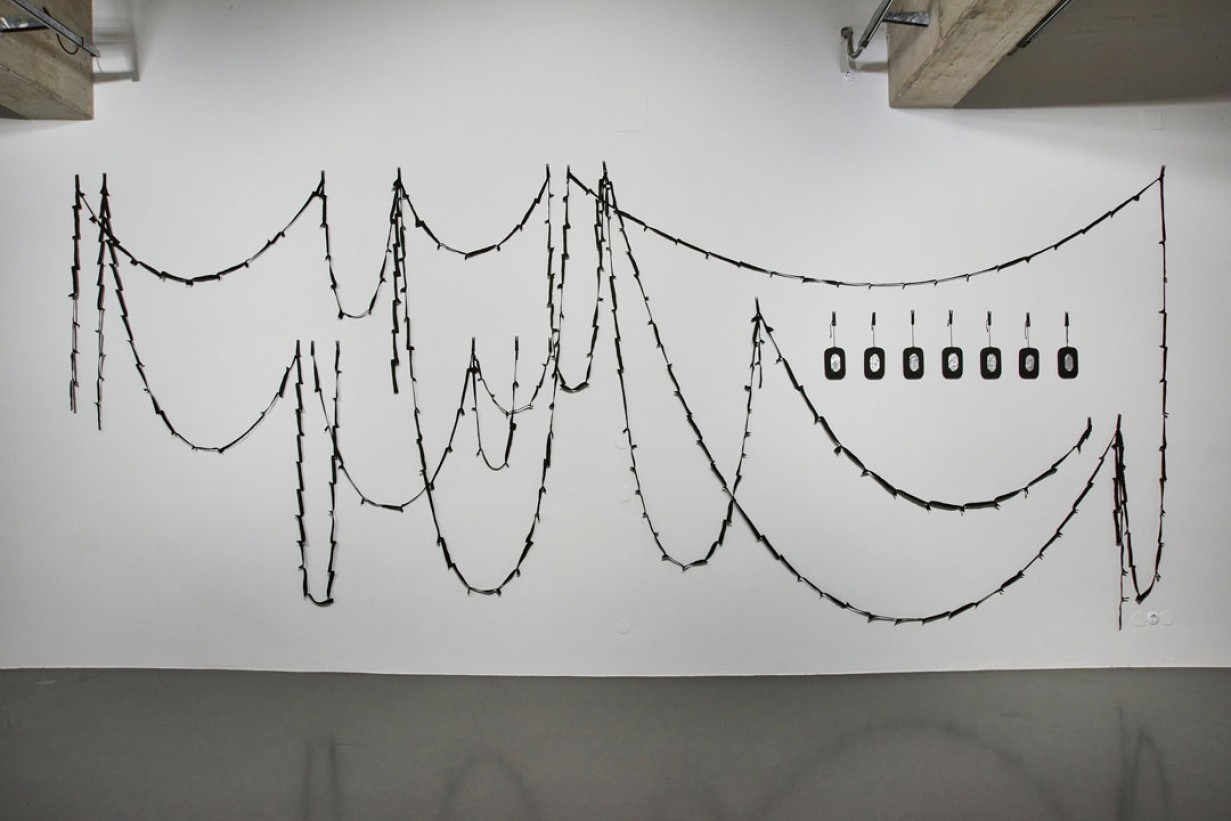
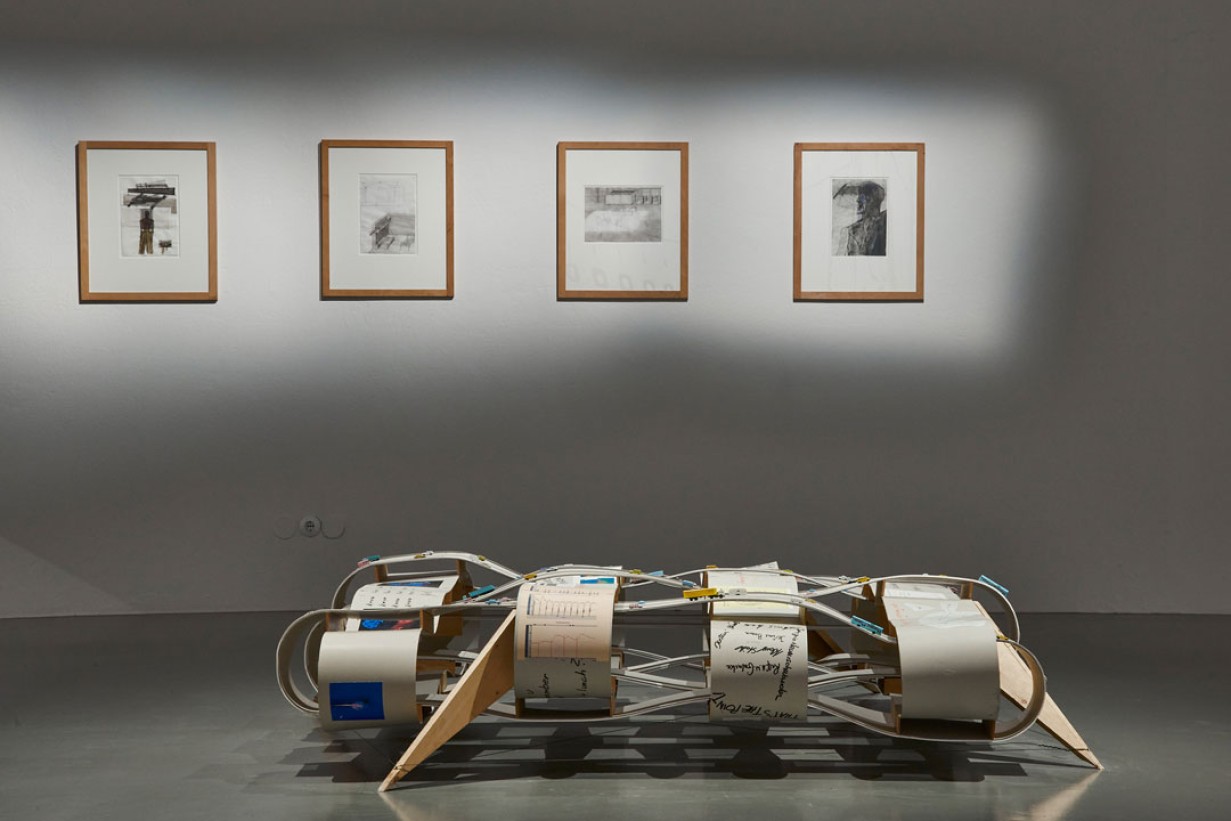
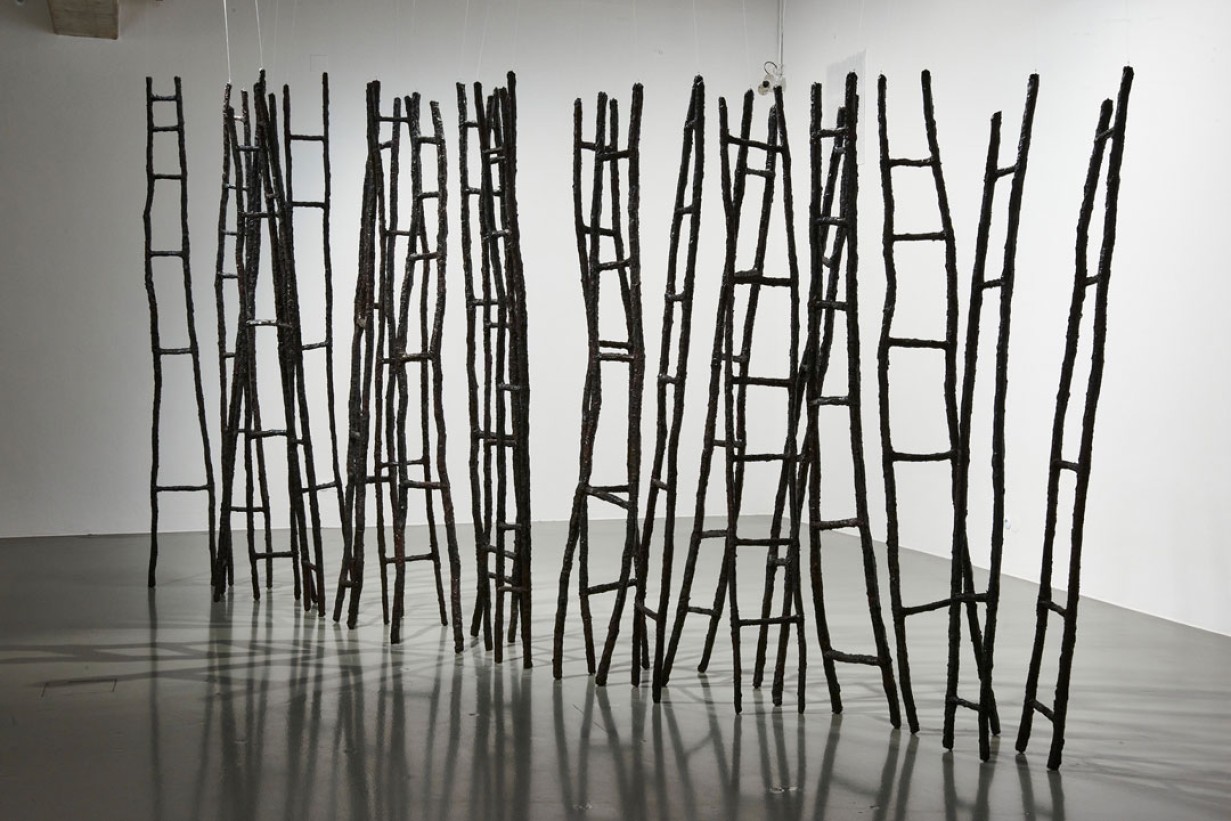
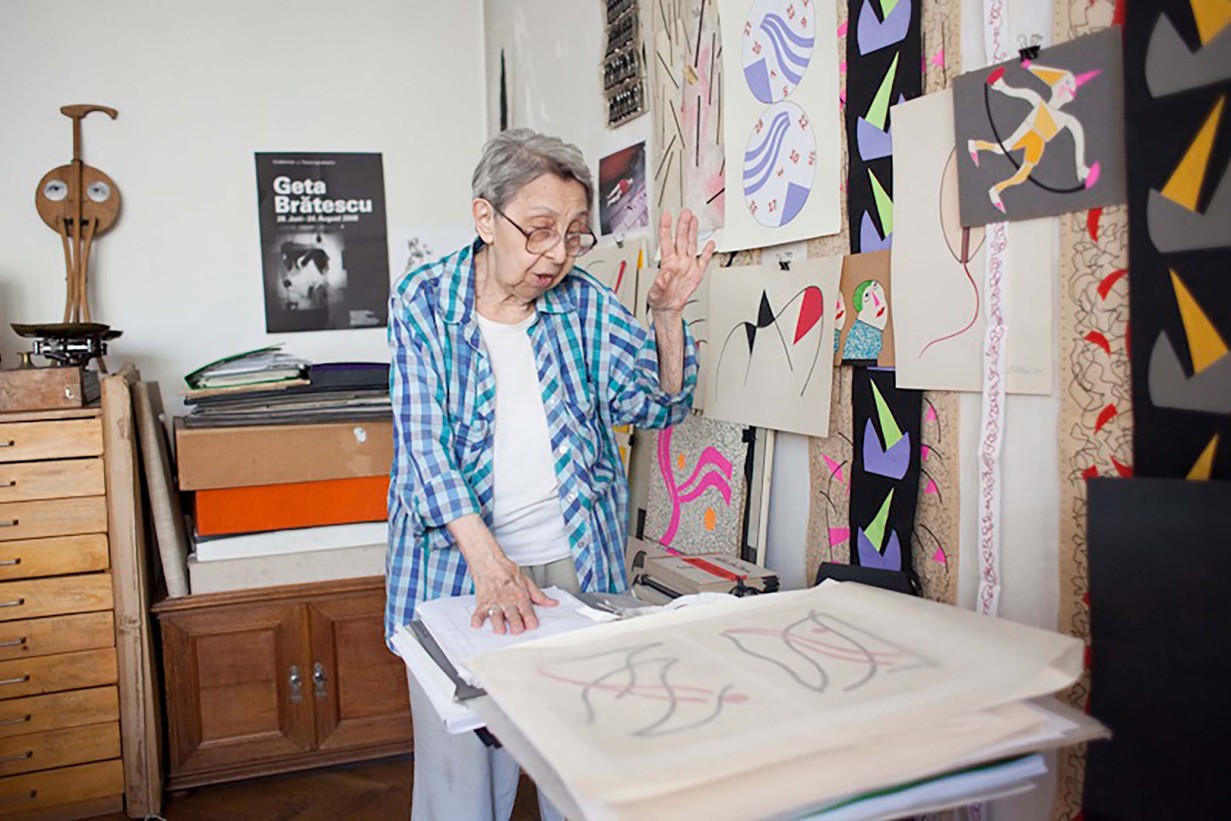
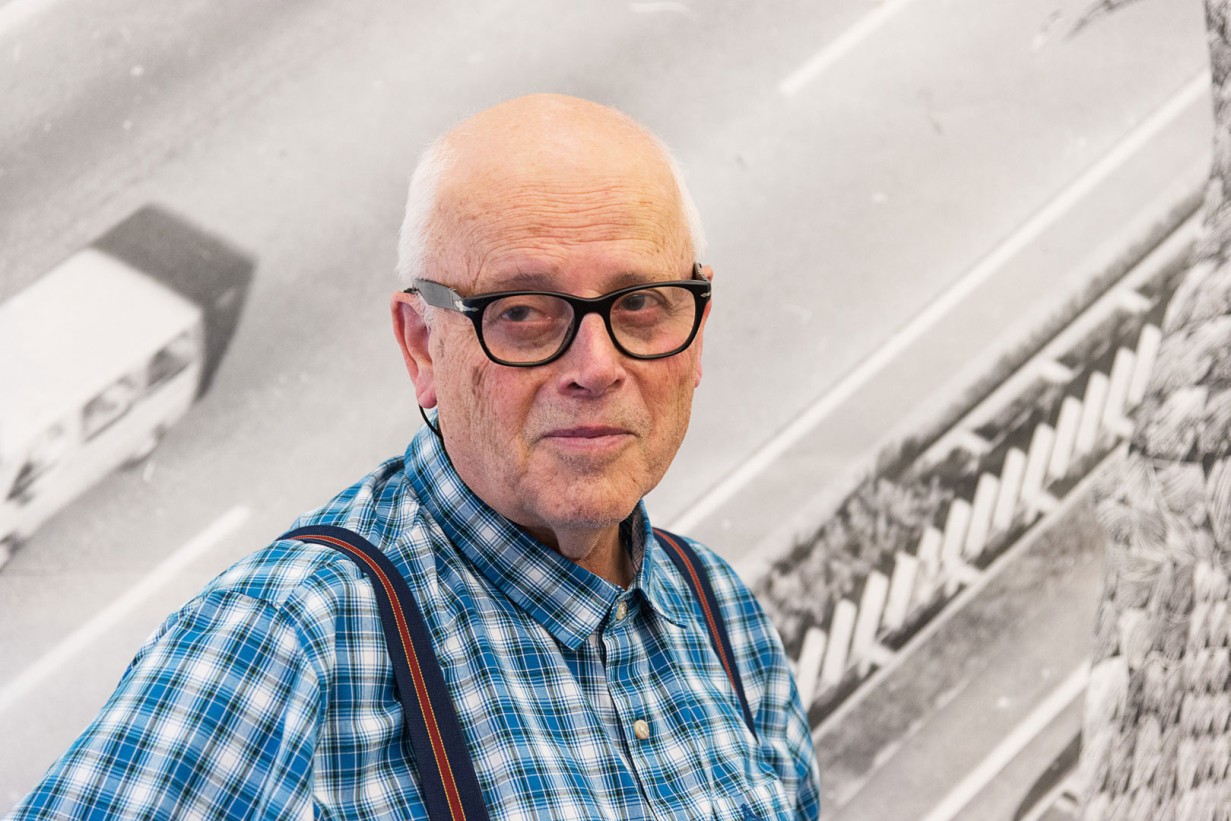
© MAK/Mona Heiß
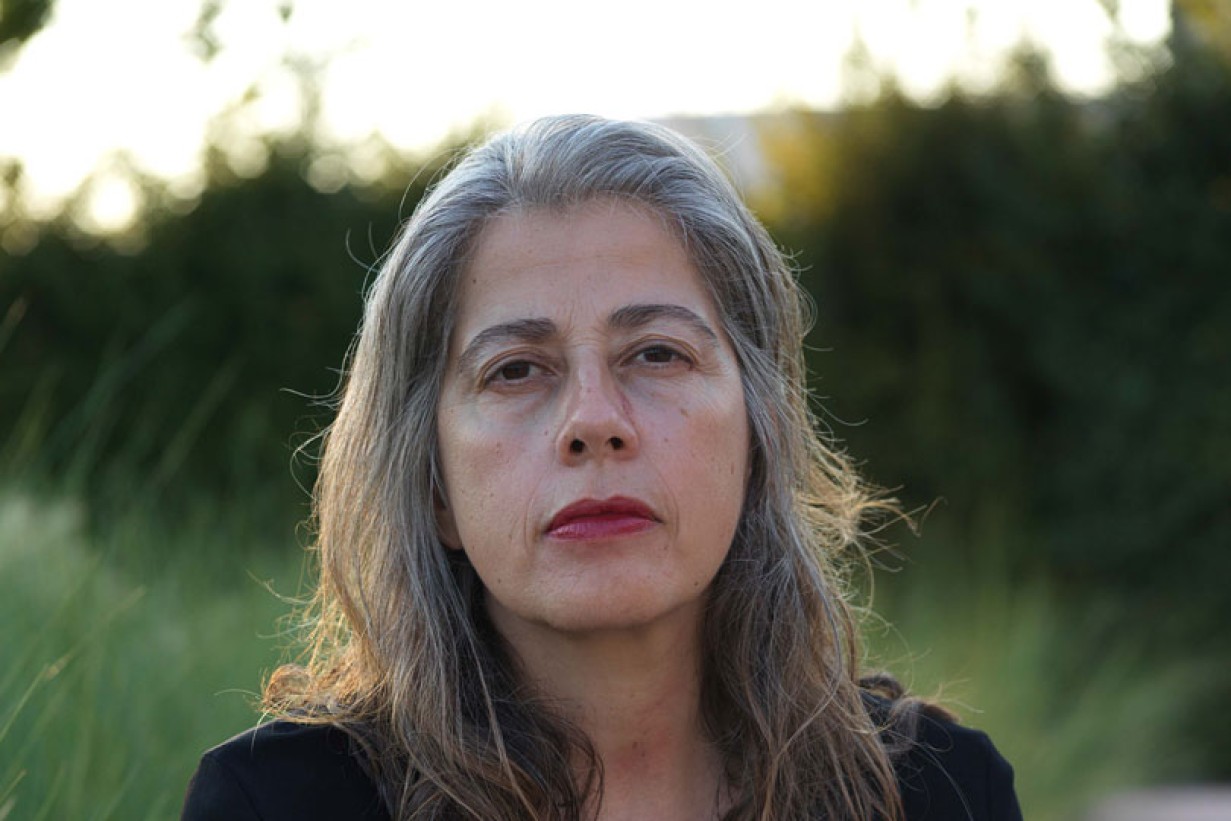
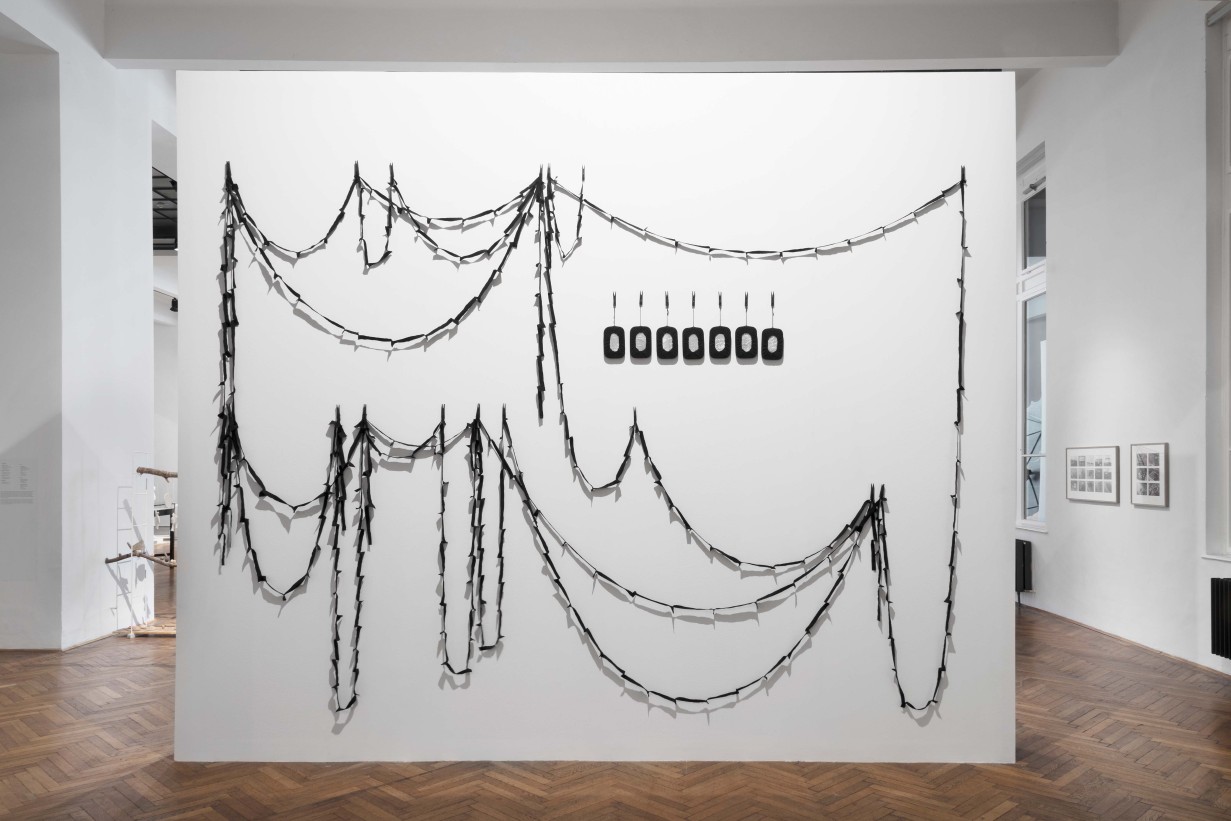
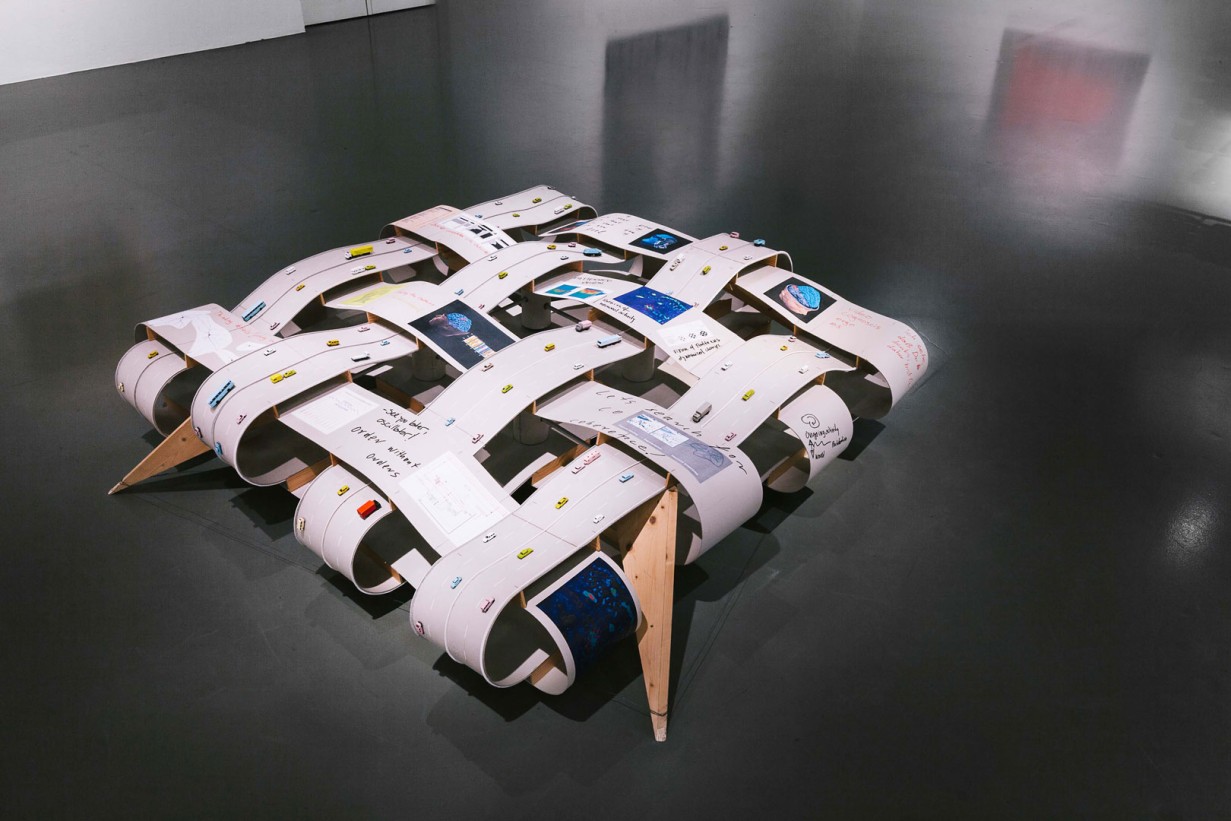
© Aslan Kudrnofsky/MAK
Previous Image
Walter Pichler (1936–2012) regarded art as a program. The immanent tension between sculpture, body, and architecture characterized his oeuvre. His sculptural language begins as an image or symbol.
Rosemarie Castoro (1939–2015) developed her own language between Minimal Art and conceptual art. She combined painting, performance, stage design, and sculpture, declaring herself a “paintersculptor.”
Geta Brătescu (1926–2018) is interested in the dualism of geometric or industrial forms and draws on Constantin Brâncuși’s exploration of archaic forms in nature, art, and architecture.
Leonor Antunes (* 1972) portrays stories of the 20th century on art, architecture, and design in her sculptural works and installations. She examines the language of natural materials, such as wood, fabrics, leathers, or metal.
Leonor Antunes (* 1972) portrays stories of the 20th century on art, architecture, and design in her sculptural works and installations. She examines the language of natural materials, such as wood, fabrics, leathers, or metal.
Leonor Antunes (* 1972) portrays stories of the 20th century on art, architecture, and design in her sculptural works and installations. She examines the language of natural materials, such as wood, fabrics, leathers, or metal.
Thomas Bayrle (* 1937) investigates mechanisms of language, images, everyday objects, and creates ornaments of mass. His “superforms” such as Jesus, Mao, the highway, or the smartphone refer to political, industrial, cultural, and religious icons.
Media
MAK Exhibition View, 2021
SIGN LANGUAGE: Antunes | Bayrle | Brătescu | Castoro | Pichler
Central Space MAK DESIGN LAB
© MAK/Georg Mayer
MAK Exhibition View, 2021
SIGN LANGUAGE: Antunes | Bayrle | Brătescu | Castoro | Pichler
Central Space MAK DESIGN LAB
© MAK/Georg Mayer
MAK Exhibition View, 2021
SIGN LANGUAGE: Antunes | Bayrle | Brătescu | Castoro | Pichler
Central Space MAK DESIGN LAB
from left to right: Geta Brătescu, Didona, 2000; Walter Pichler, Bed (Model), 2000
© MAK/Georg Mayer
MAK Exhibition View, 2021
SIGN LANGUAGE: Antunes | Bayrle | Brătescu | Castoro | Pichler
Central Space MAK DESIGN LAB
in the front: Thomas Bayrle, Objekt Singer, 1999; in the background: Walter Pichler, Series Bed (1998–2001)
© Bildrecht, Vienna 2021
Photo: MAK/Georg Mayer
MAK Exhibition View, 2021
SIGN LANGUAGE: Antunes | Bayrle | Brătescu | Castoro | Pichler
Central Space MAK DESIGN LAB
in the front: Leonor Antunes, I stand like a mirror before you, 2015; discrepancies with F.K., 2016 (Two-part installation); in the background: Geta Brătescu, Didona, 2000
© MAK/Georg Mayer
MAK Exhibition View, 2021
SIGN LANGUAGE: Antunes | Bayrle | Brătescu | Castoro | Pichler
Central Space MAK DESIGN LAB
in the background: Geta Brătescu, Didona, 2000
© MAK/Georg Mayer
MAK Exhibition View, 2021
SIGN LANGUAGE: Antunes | Bayrle | Brătescu | Castoro | Pichler
Central Space MAK DESIGN LAB
Geta Brătescu, Didona, 2000
© MAK/Georg Mayer
MAK Exhibition View, 2021
SIGN LANGUAGE: Antunes | Bayrle | Brătescu | Castoro | Pichler
Central Space MAK DESIGN LAB
in the front: Thomas Bayrle, Objekt Singer, 1999; in the background: Walter Pichler, Series Bed (1998–2001)
© Bildrecht, Vienna 2021
Photo: MAK/Georg Mayer
MAK Exhibition View, 2021
SIGN LANGUAGE: Antunes | Bayrle | Brătescu | Castoro | Pichler
Central Space MAK DESIGN LAB
Rosemarie Castoro, Land of Lads, 1975
© MAK/Georg Mayer
Austrian Ludwig Foundation for Art and Science
The Estate of Rosemarie Castoro / Galerie Thaddaeus Ropac
ZEICHENSPRACHE. Antunes | Bayrle | Brătescu | Castoro | Pichler
Leonor Antunes, I stand like a mirror before you, 2015; discrepancies with F.K., 2016
Courtesy of the artist and kurimanzutto, Mexico City
© MAK/Georg Mayer
ZEICHENSPRACHE. Antunes | Bayrle | Brătescu | Castoro | Pichler
Geta Brătescu, Didona, 2000
© MAK/Aslan Kudrnofsky
